AI WEIWEI
81 QUESTIONS
About this work
Edition details
Packaging


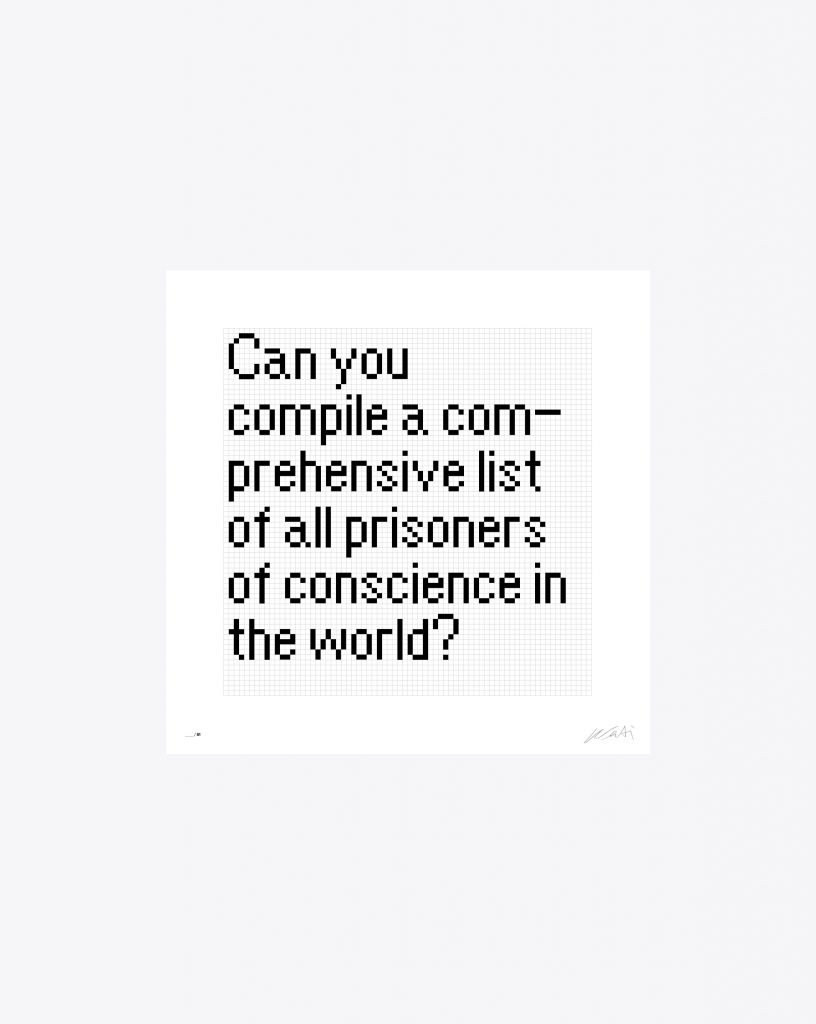
QUESTION 1/81
£600

QUESTION 2/81
£600
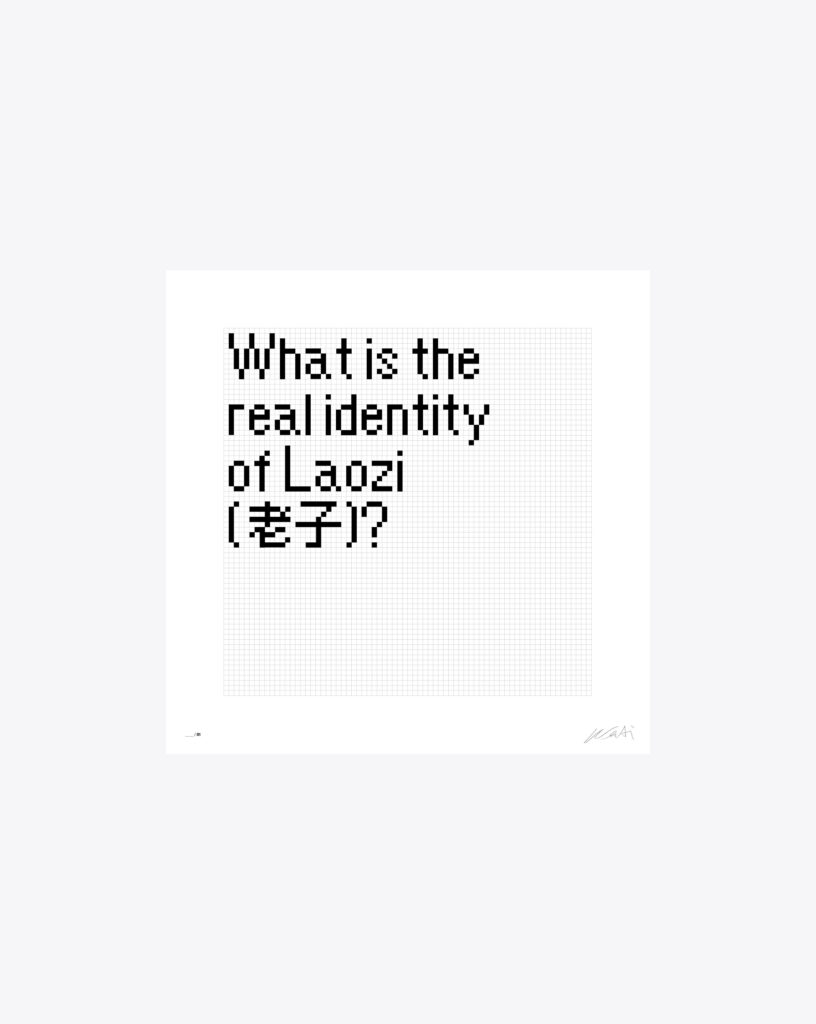
QUESTION 3/81
£600
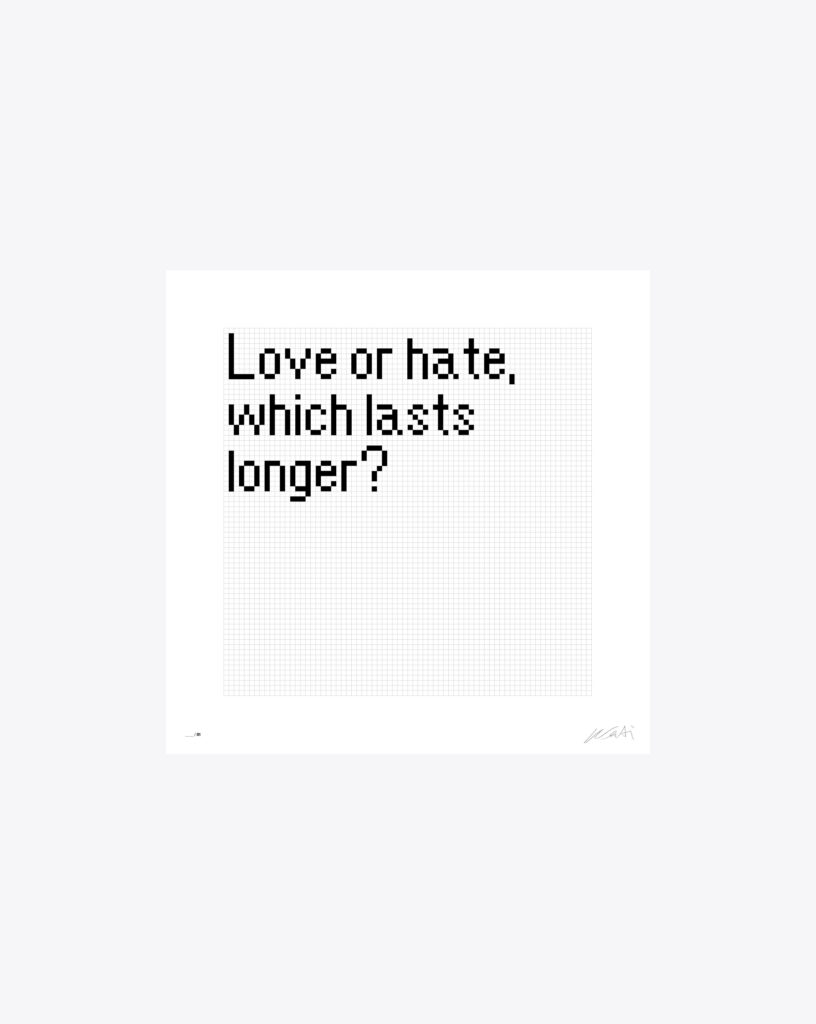
QUESTION 4/81
SOLD OUT

QUESTION 5/81
£600

QUESTION 6/81
£600
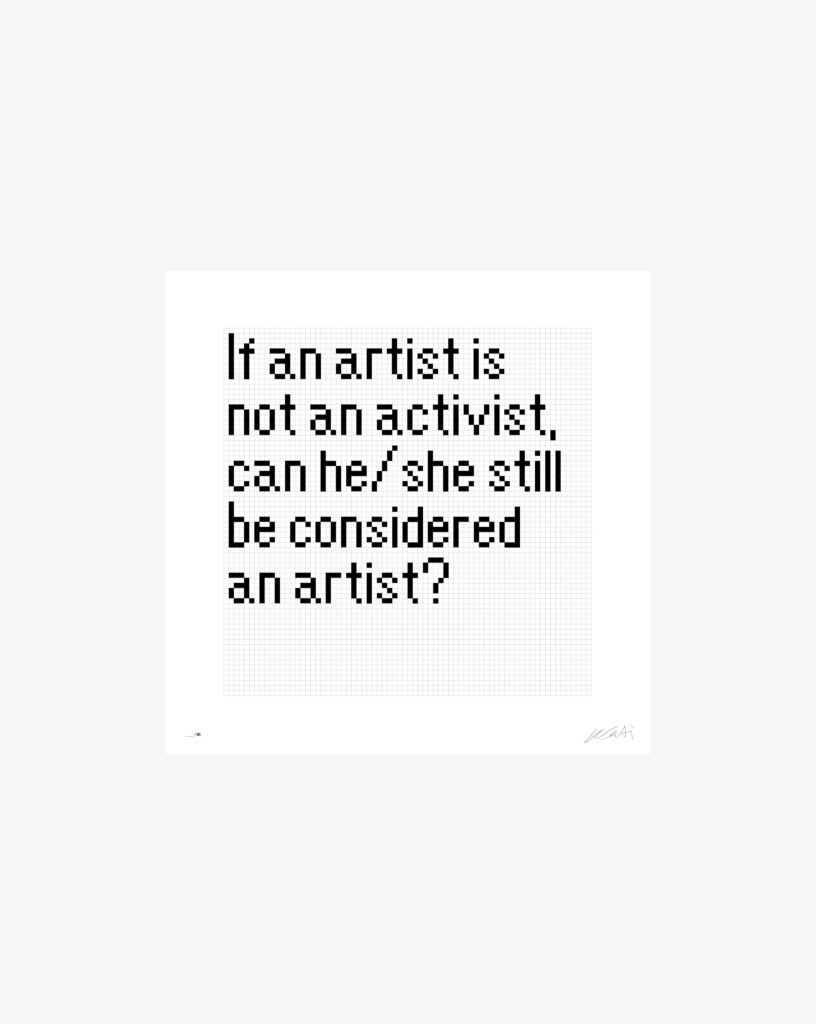
QUESTION 7/81
SOLD OUT
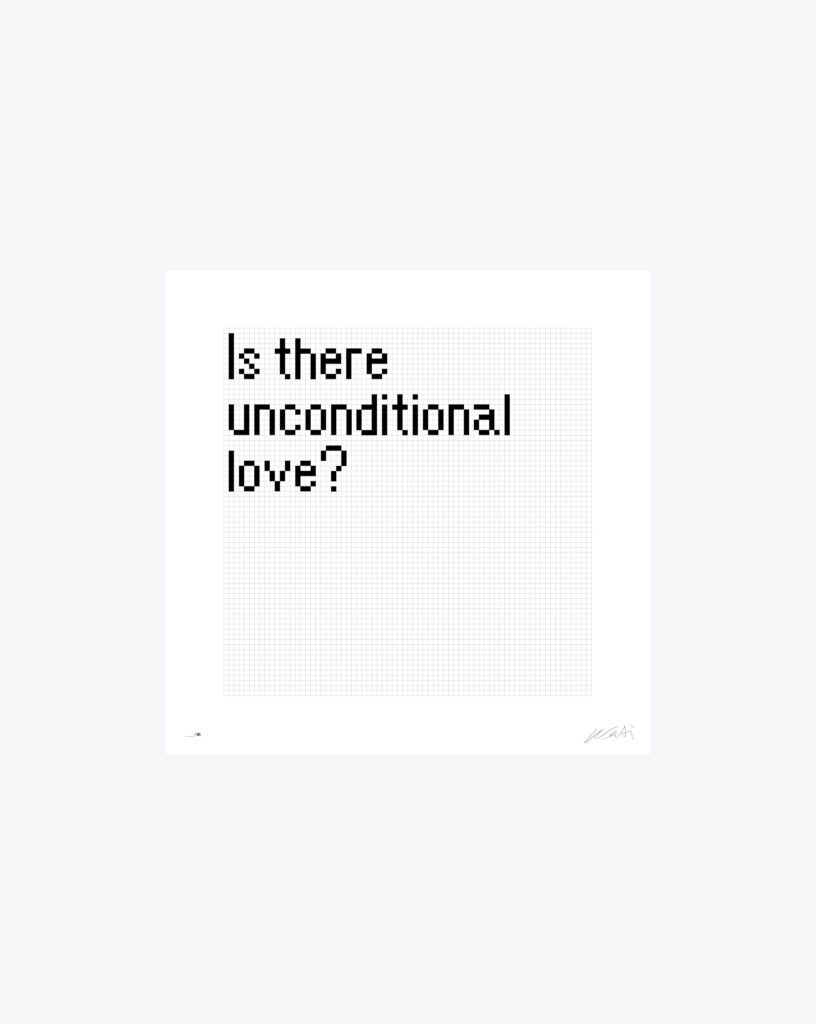
QUESTION 8/81
SOLD OUT
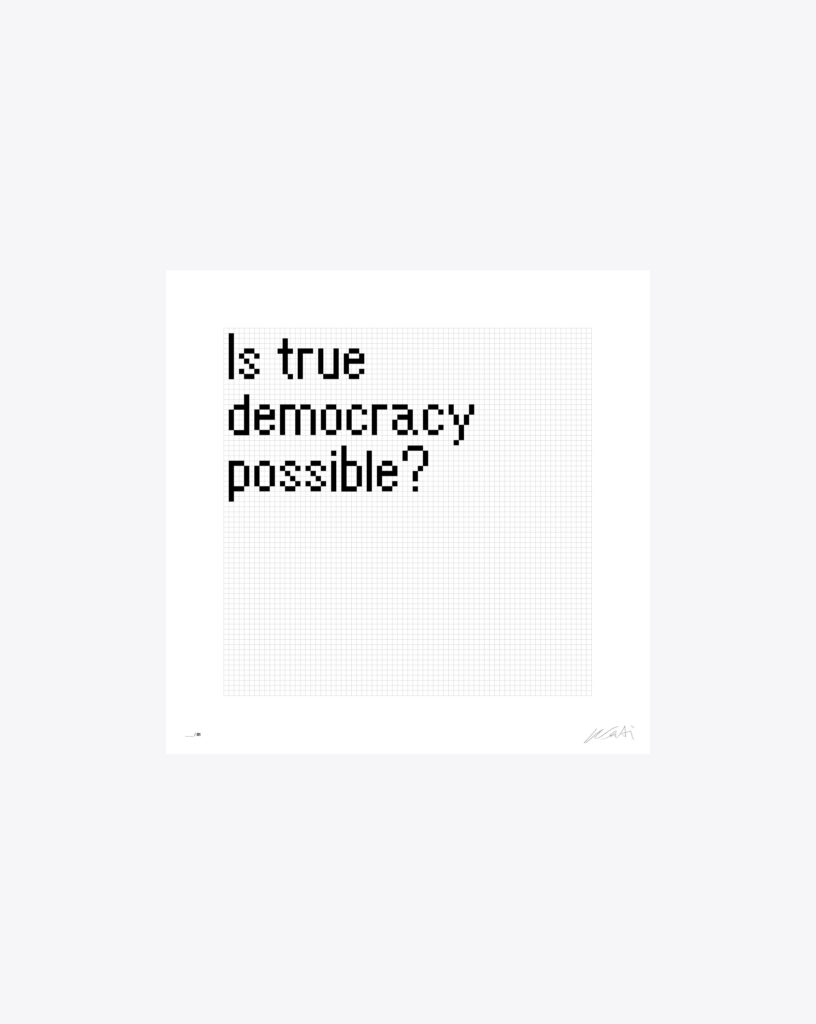
QUESTION 9/81
£600

QUESTION 10/81
£600

QUESTION 11/81
£600

QUESTION 12/81
SOLD OUT
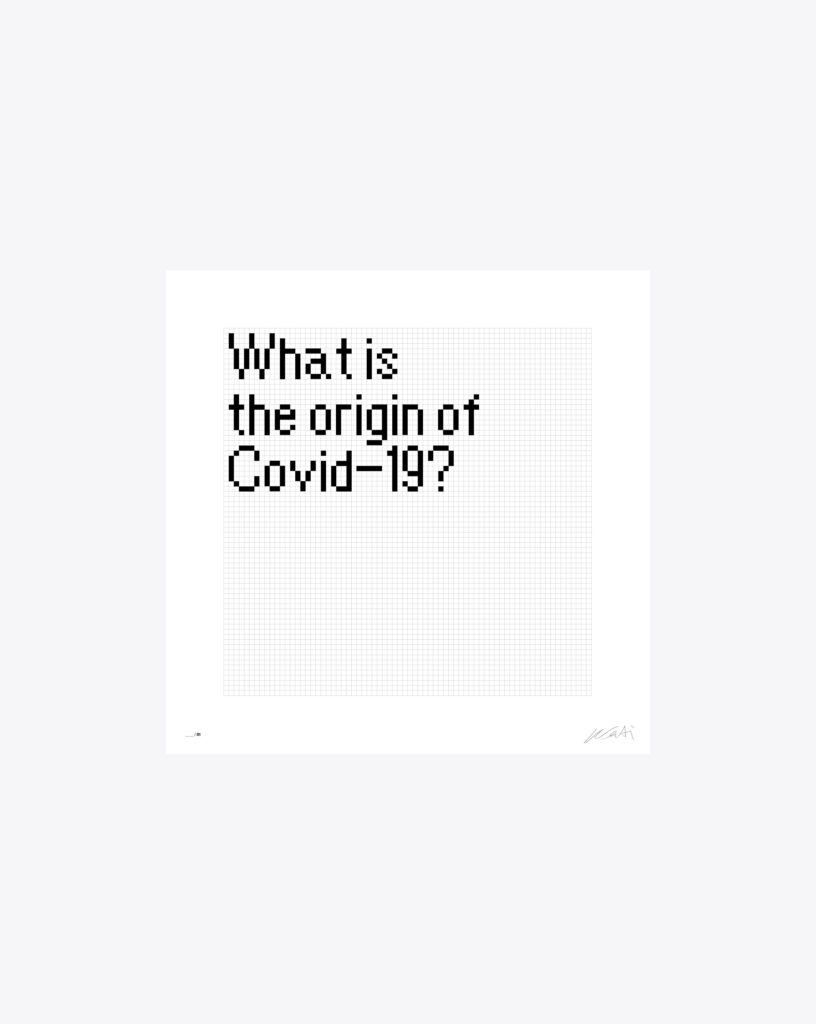
QUESTION 13/81
£600

QUESTION 14/81
£600
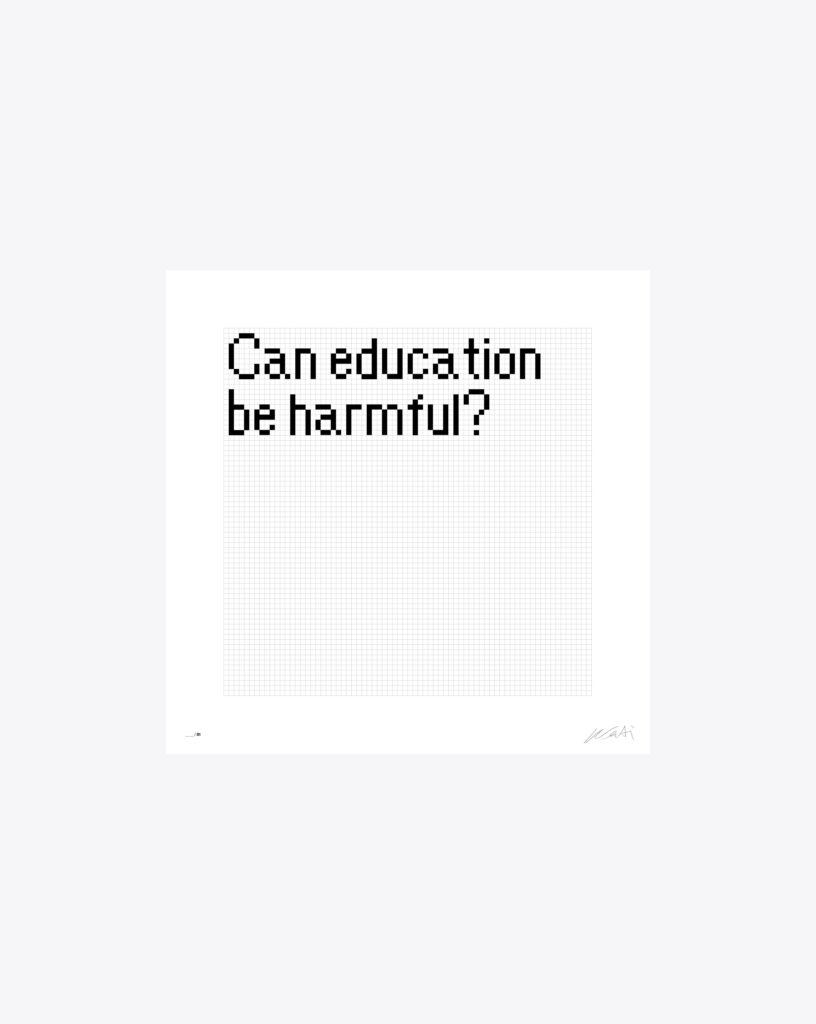
QUESTION 15/81
£600
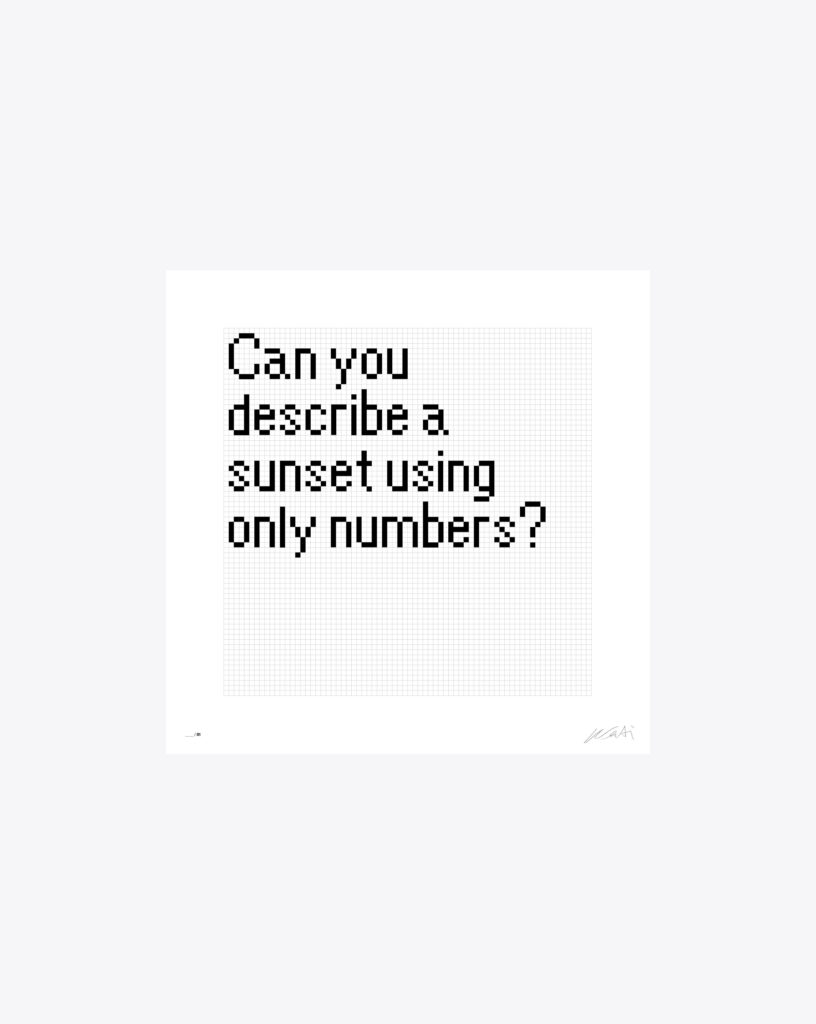
QUESTION 16/81
SOLD OUT

QUESTION 17/81
£600
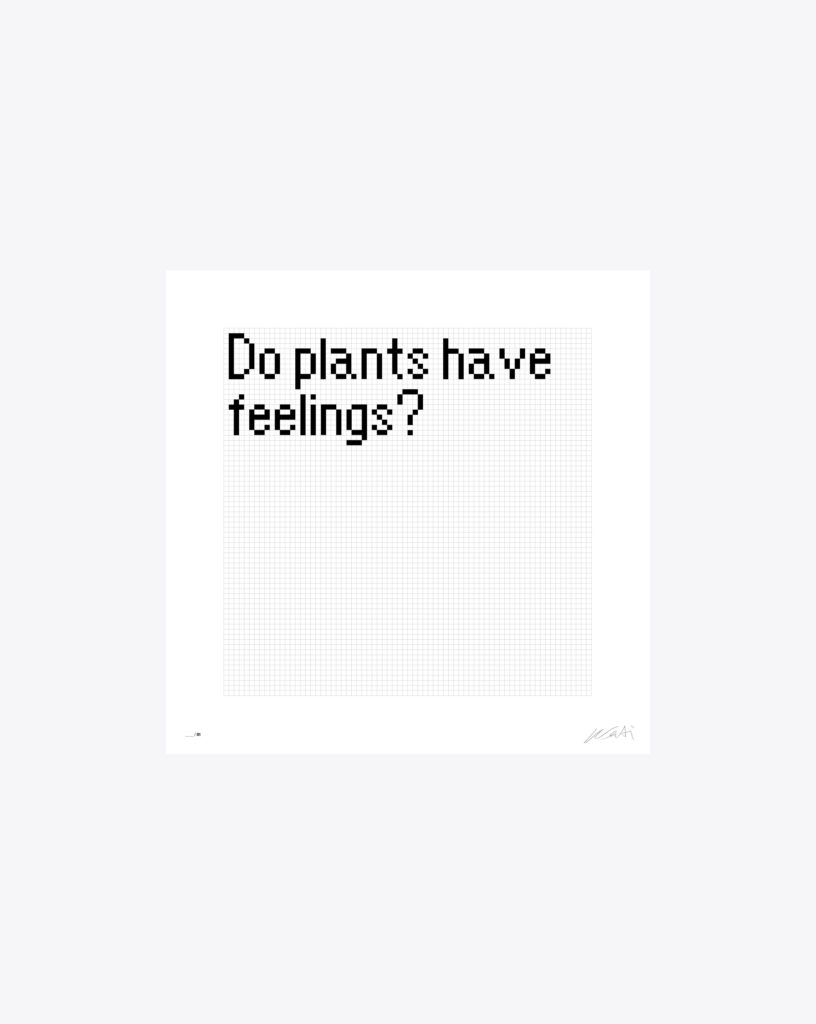
QUESTION 18/81
£600
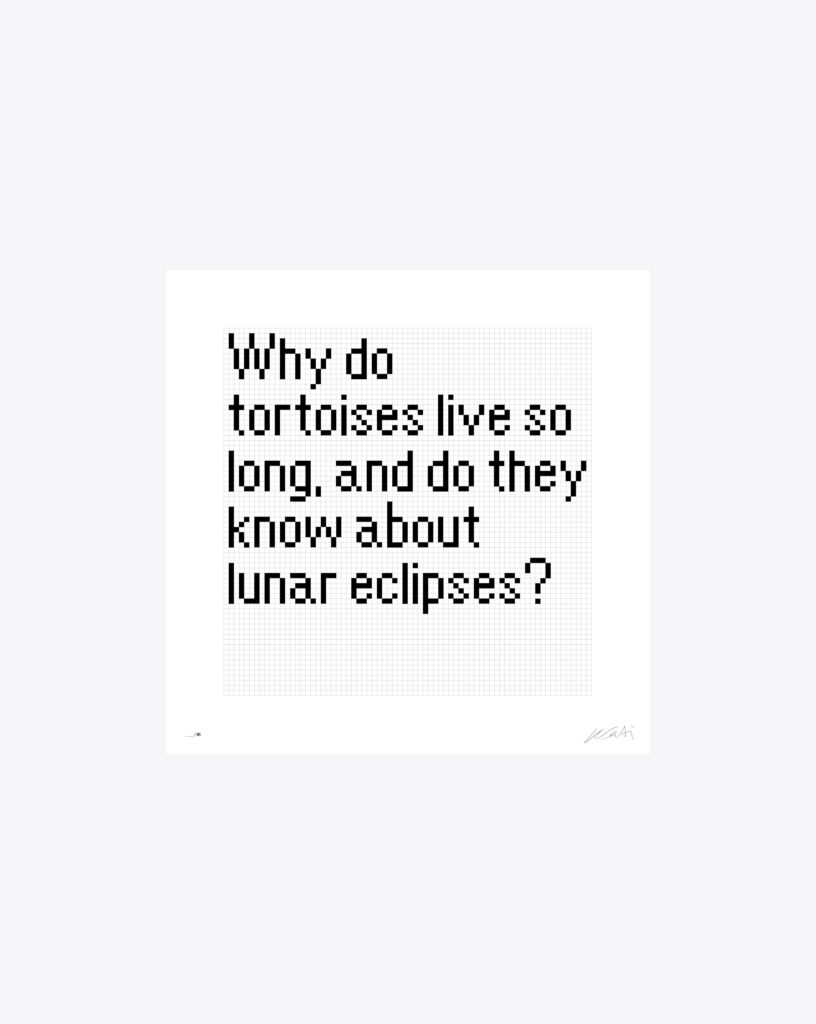
QUESTION 19/81
£600

QUESTION 20/81
£600
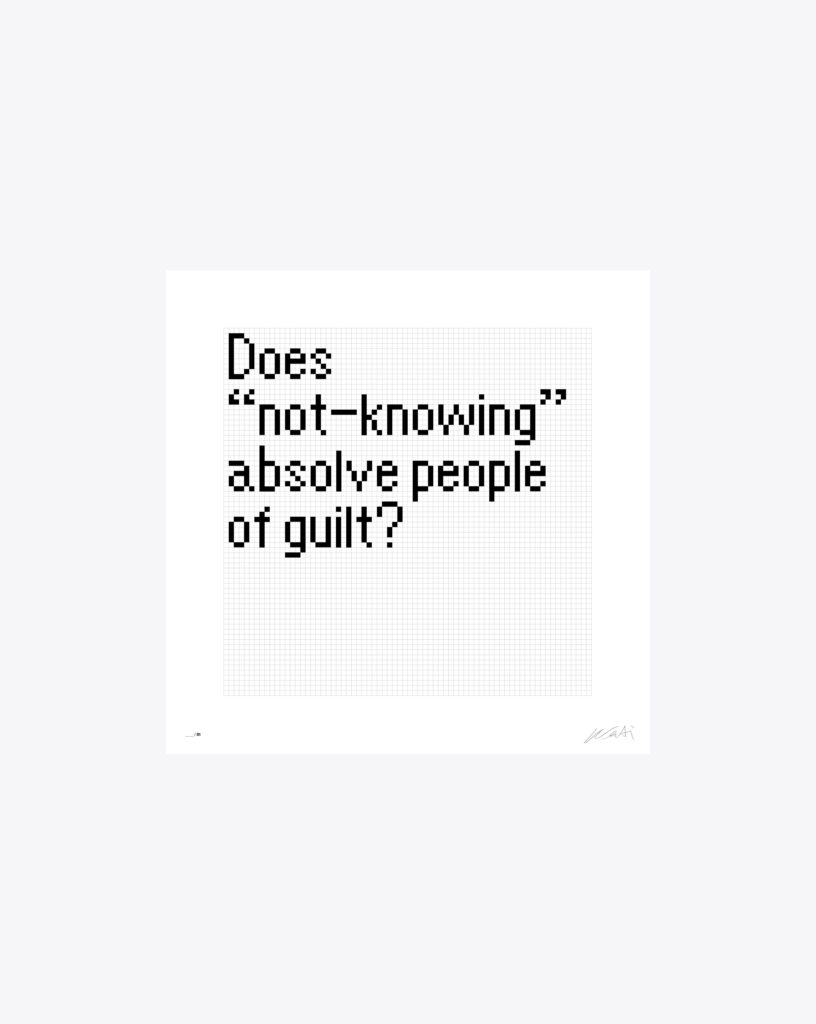
QUESTION 21/81
£600

QUESTION 22/81
£600

QUESTION 23/81
£600

QUESTION 24/81
£600
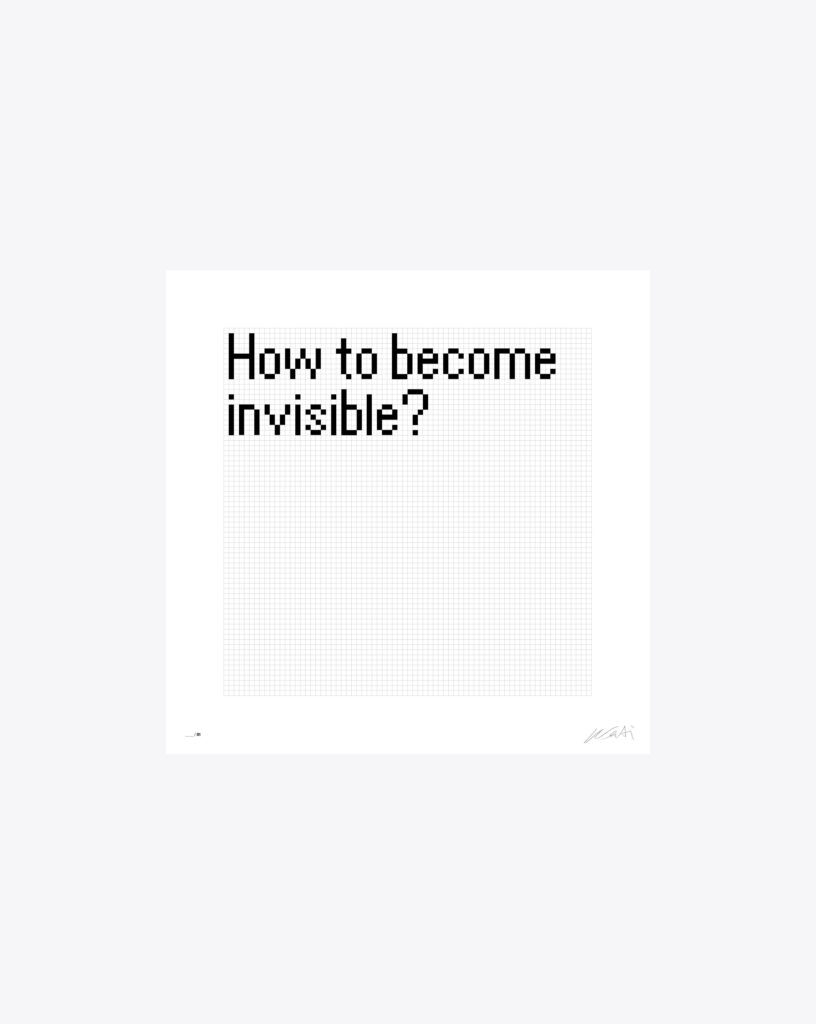
QUESTION 25/81
£600
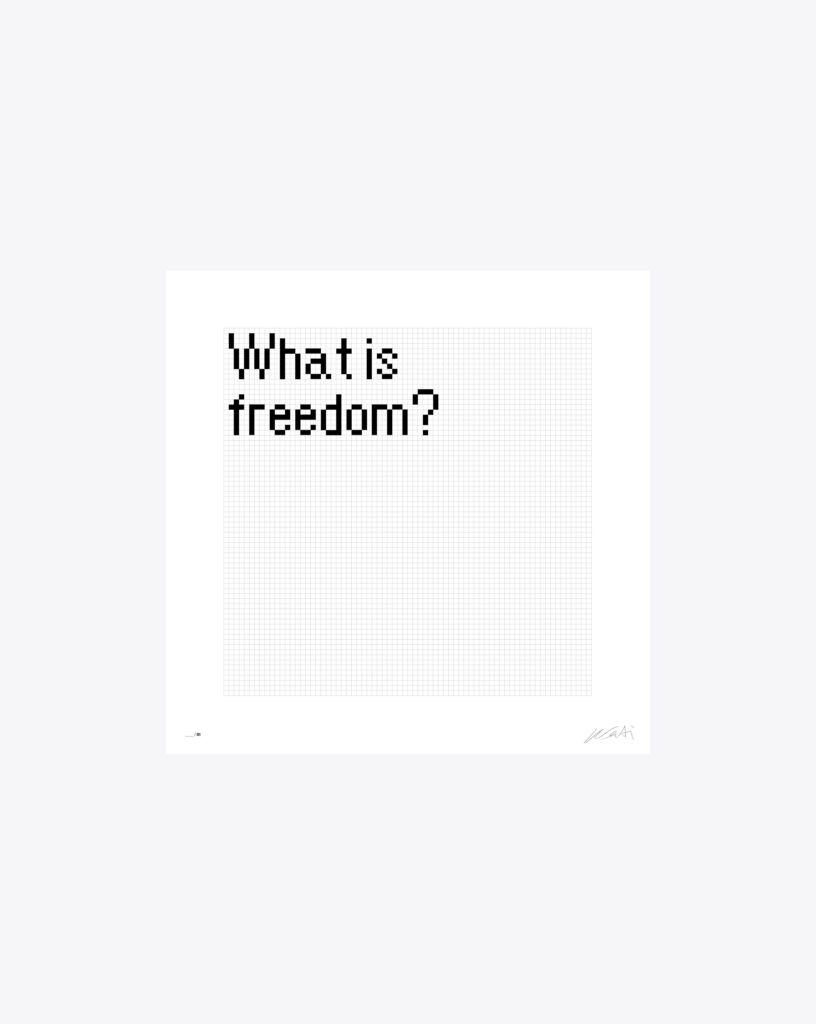
QUESTION 26/81
SOLD OUT

QUESTION 27/81
£600

QUESTION 28/81
£600
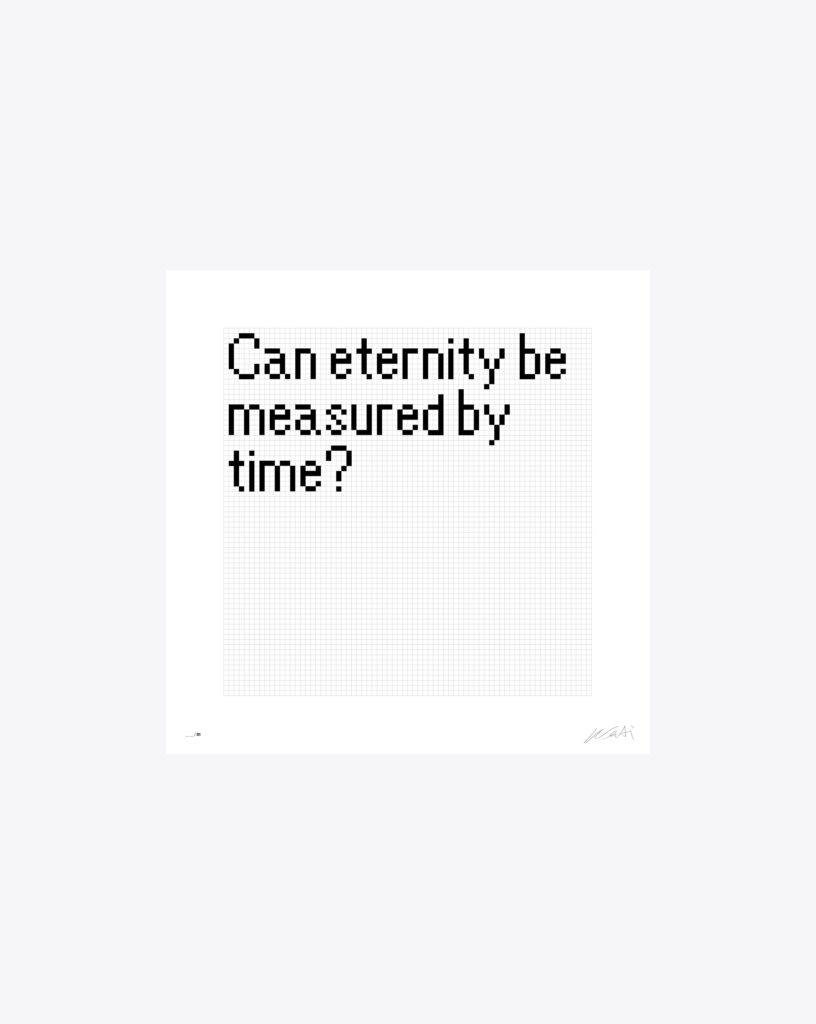
QUESTION 29/81
£600

QUESTION 30/81
SOLD OUT
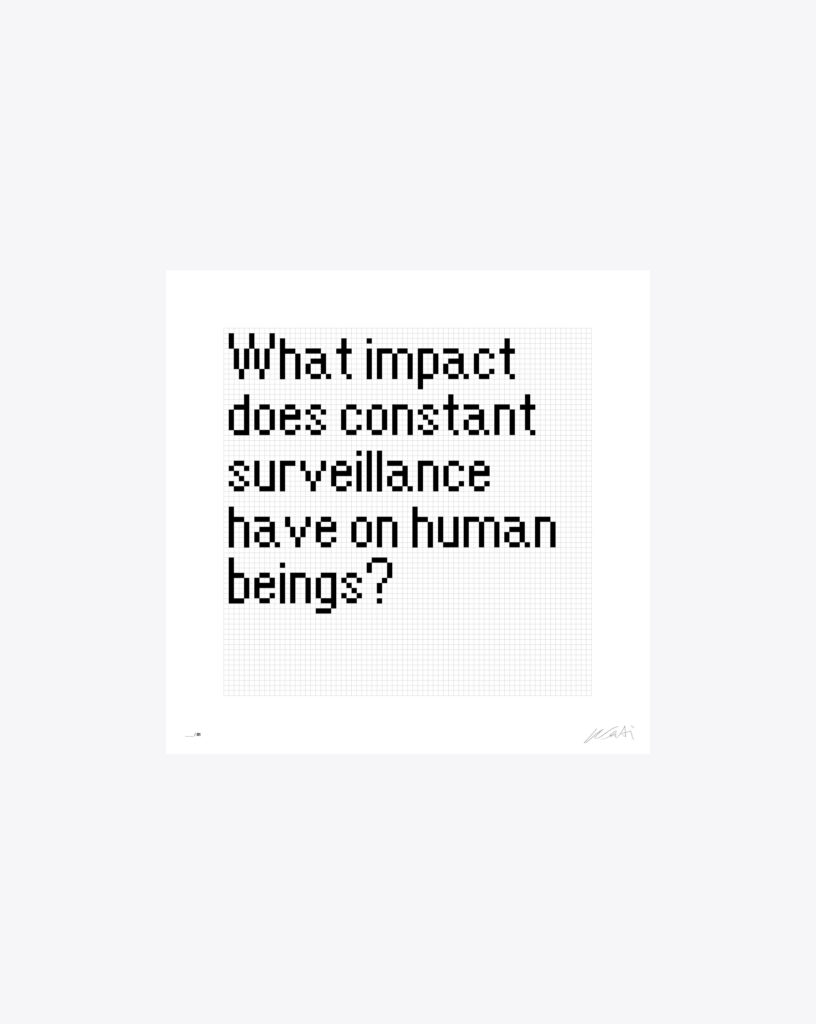
QUESTION 31/81
£600
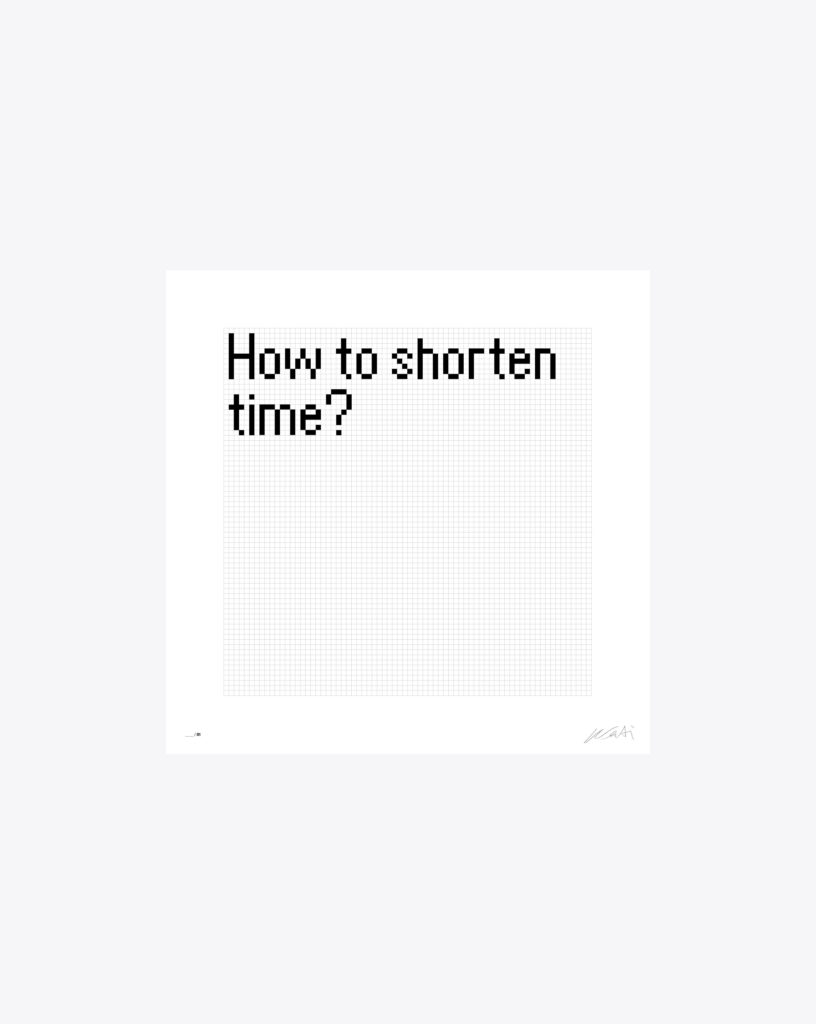
QUESTION 32/81
£600

QUESTION 33/81
£600
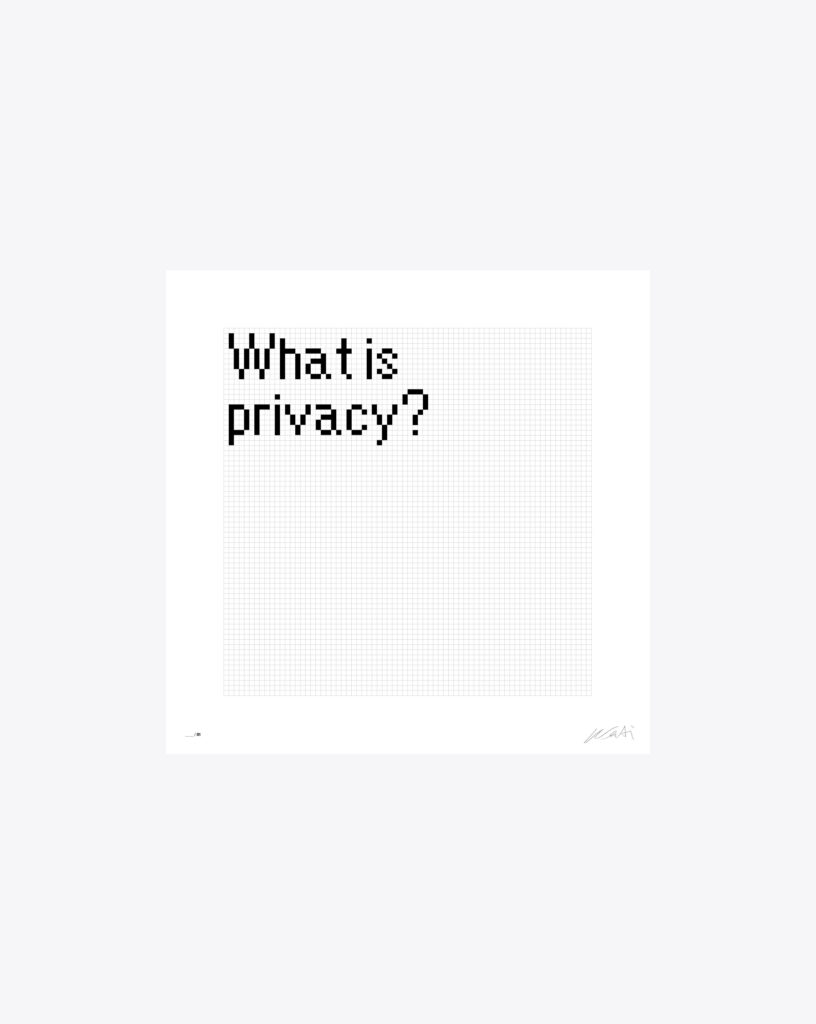
QUESTION 34/81
£600

QUESTION 35/81
£600
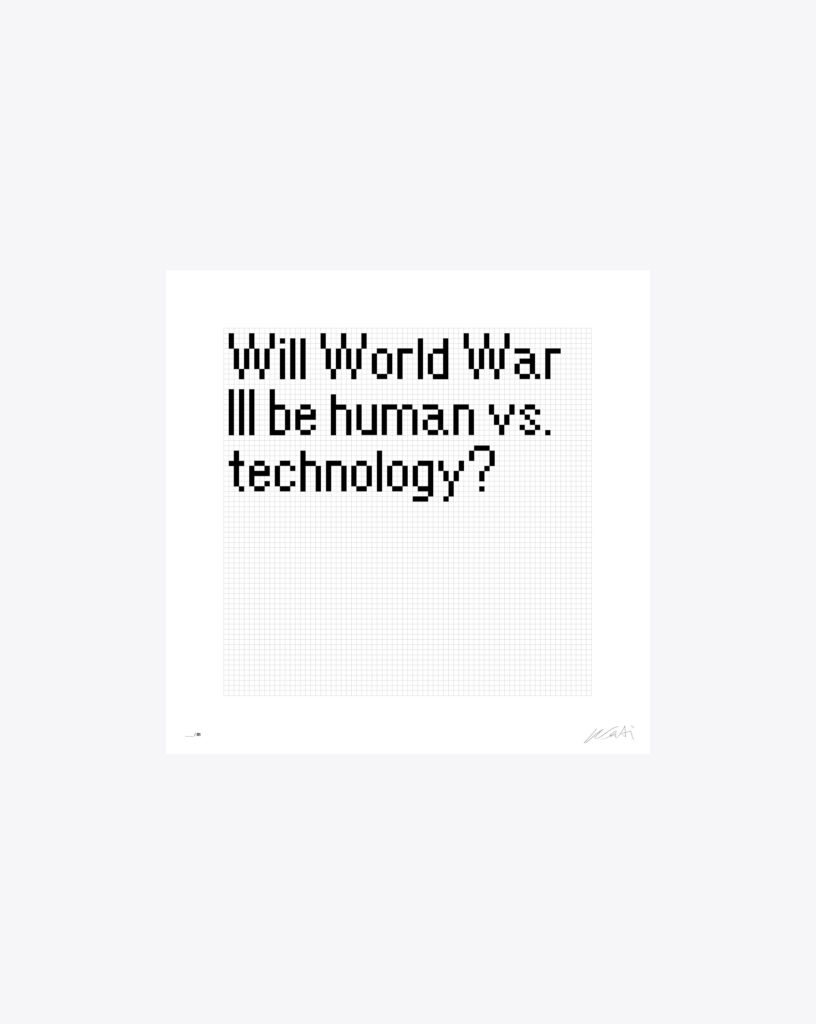
QUESTION 36/81
£600
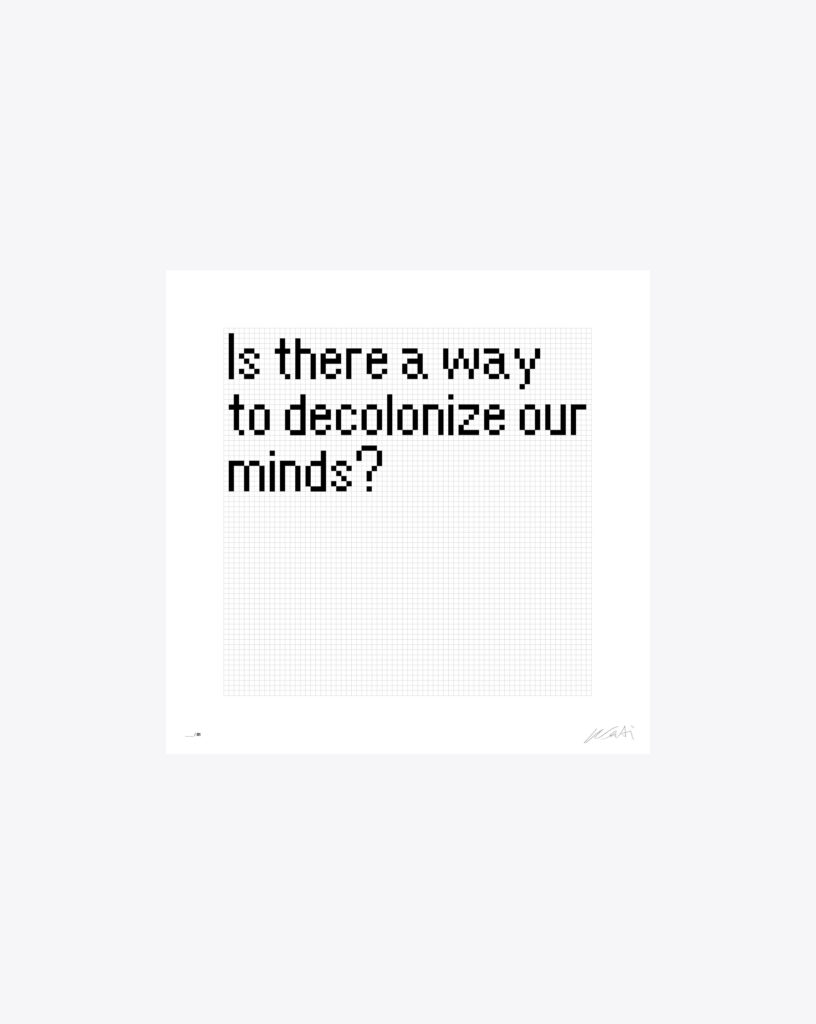
QUESTION 37/81
£600
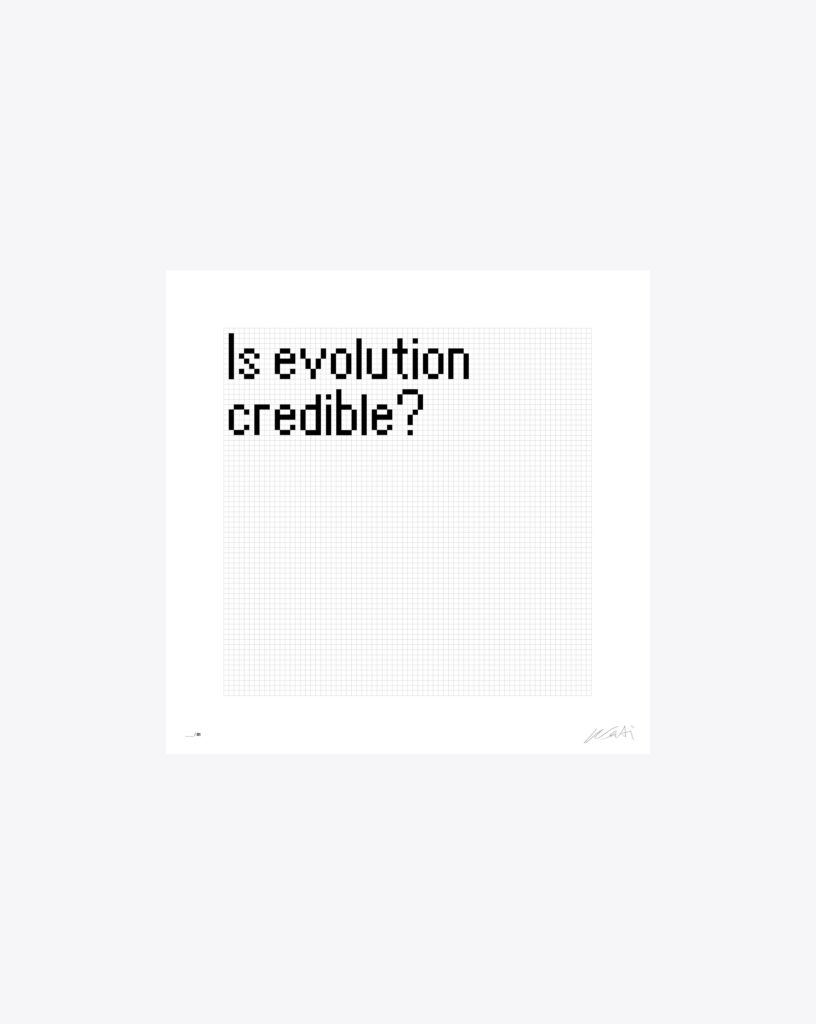
QUESTION 38/81
£600

QUESTION 39/81
£600
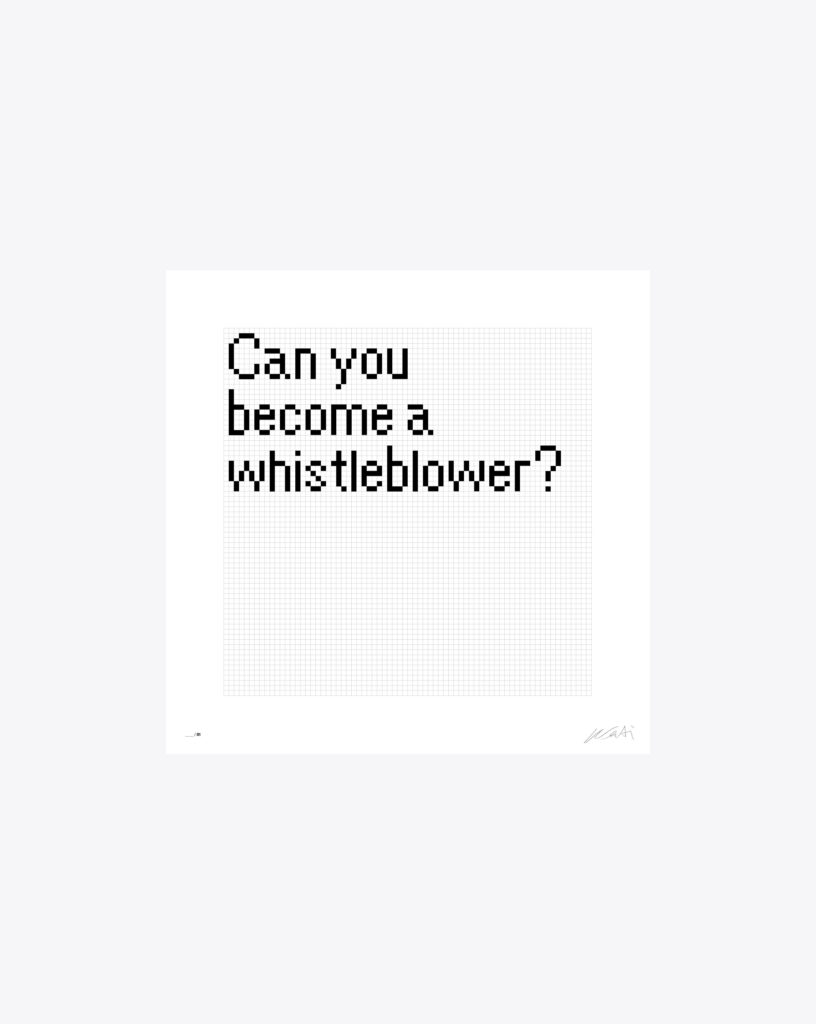
QUESTION 40/81
£600
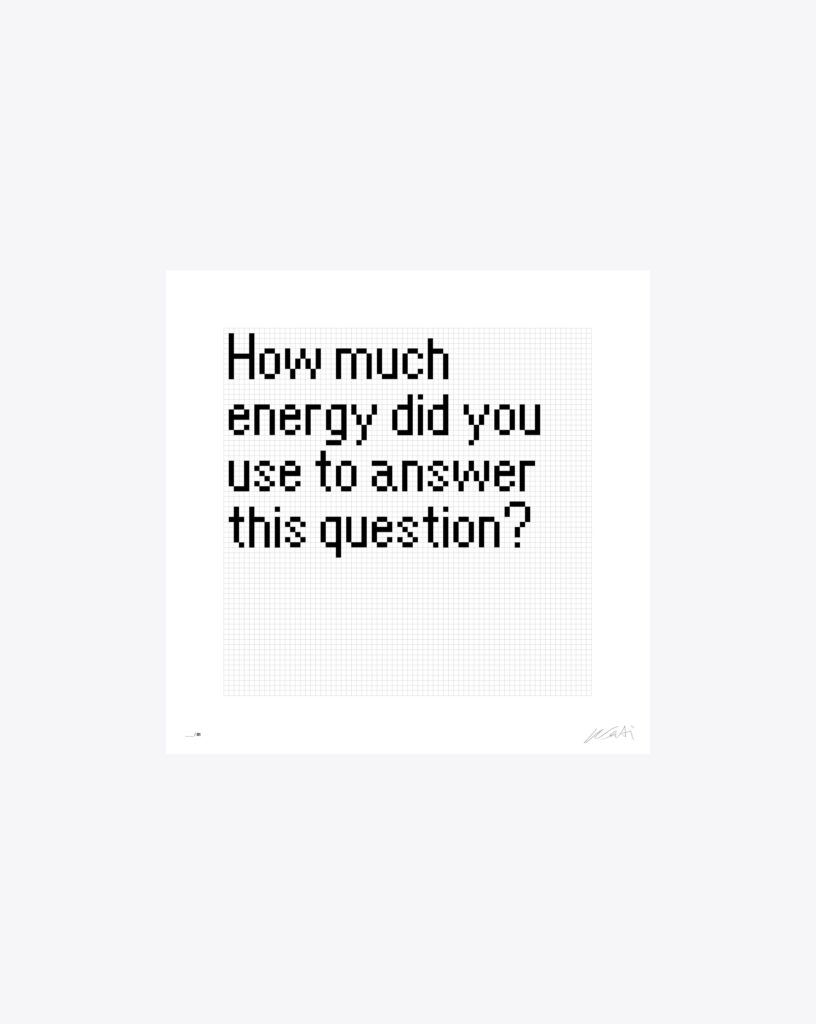
QUESTION 41/81
£600
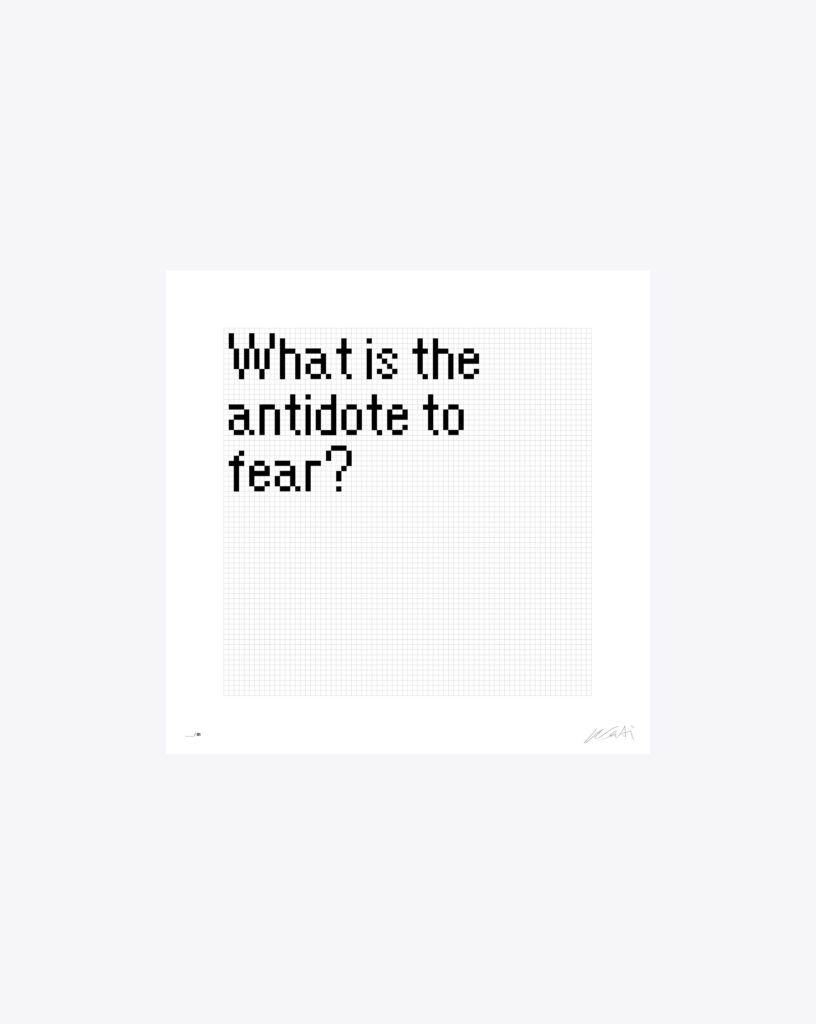
QUESTION 42/81
£600

QUESTION 43/81
£600
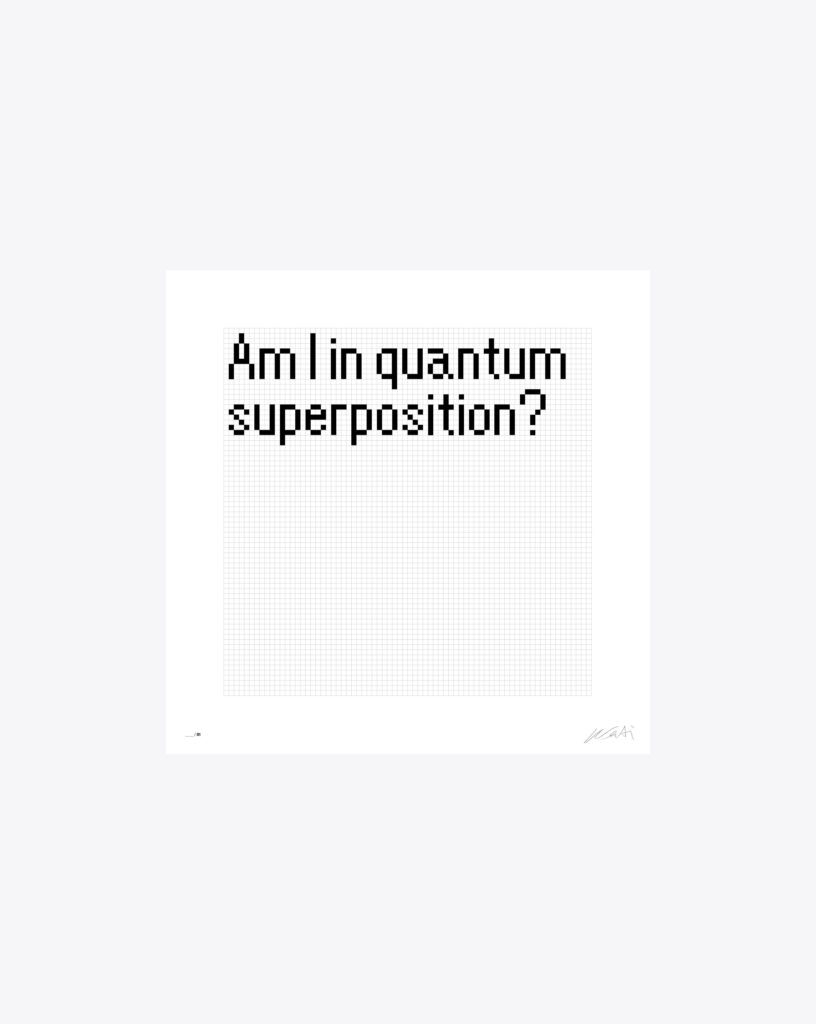
QUESTION 44/81
£600
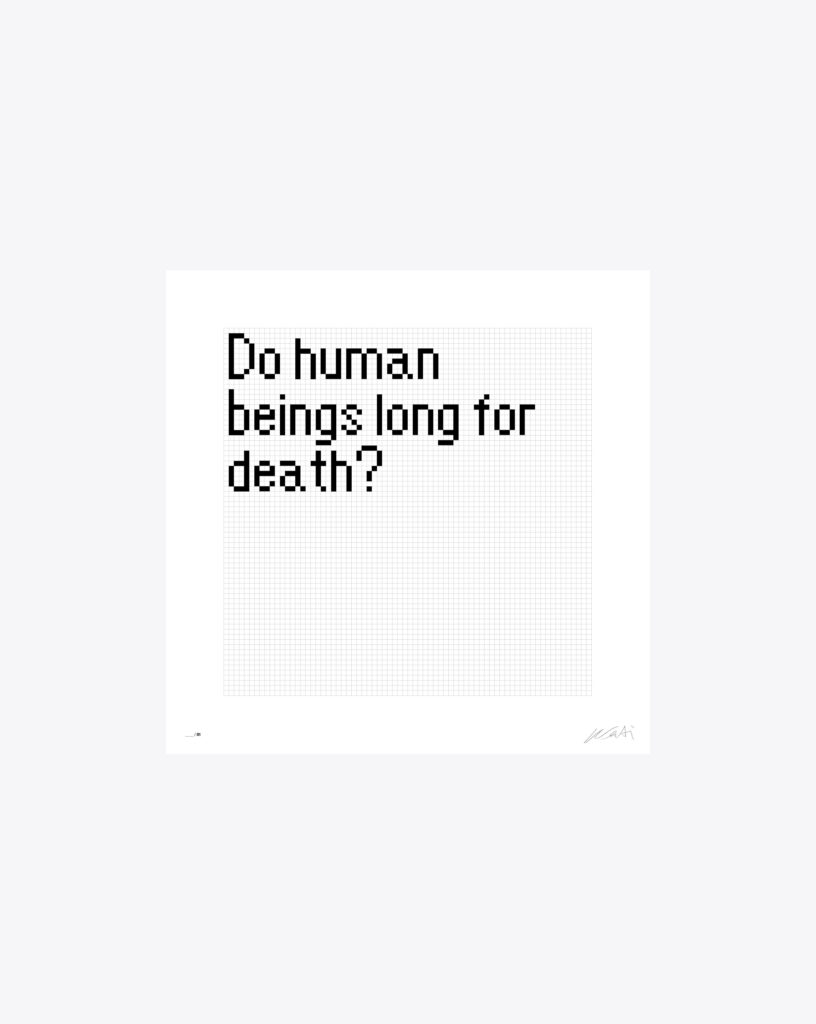
QUESTION 45/81
£600

QUESTION 46/81
£600
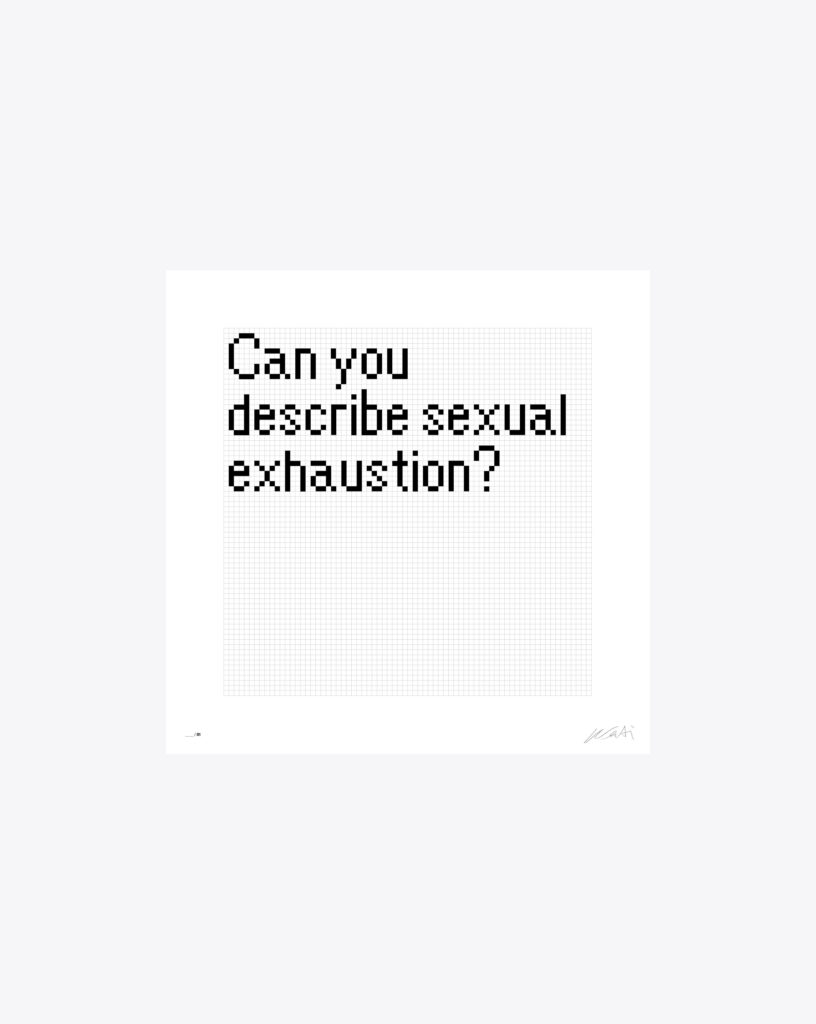
QUESTION 47/81
£600
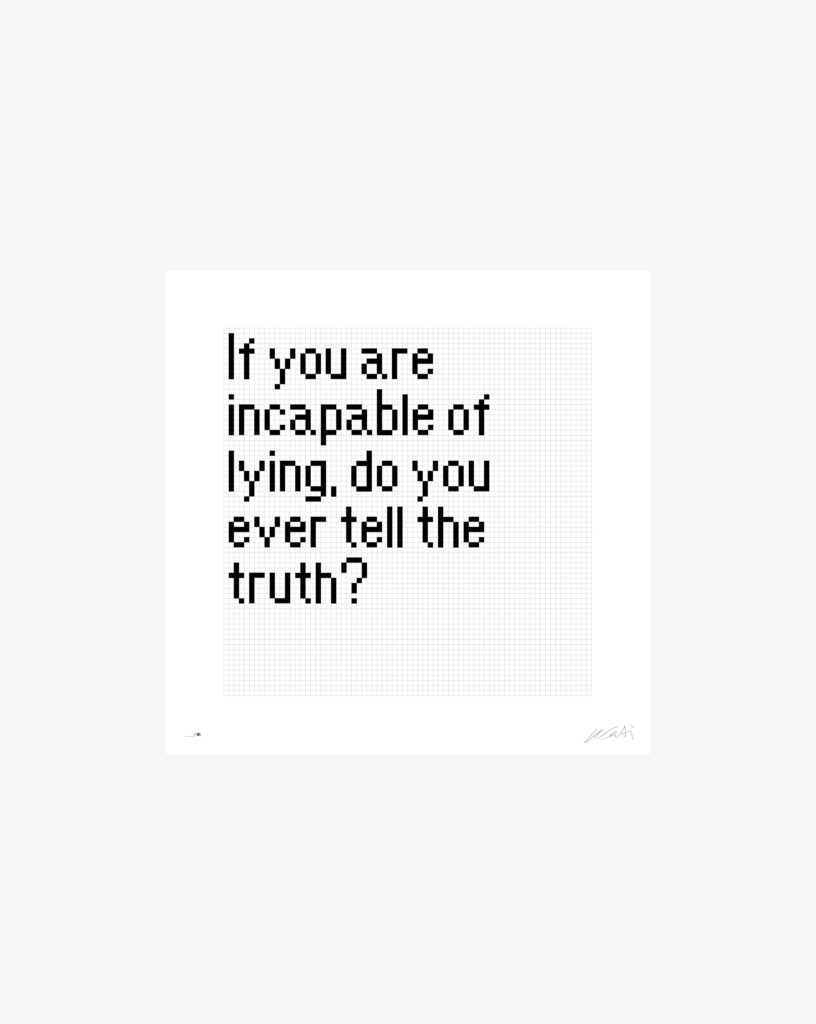
QUESTION 48/81
£600

QUESTION 49/81
£600
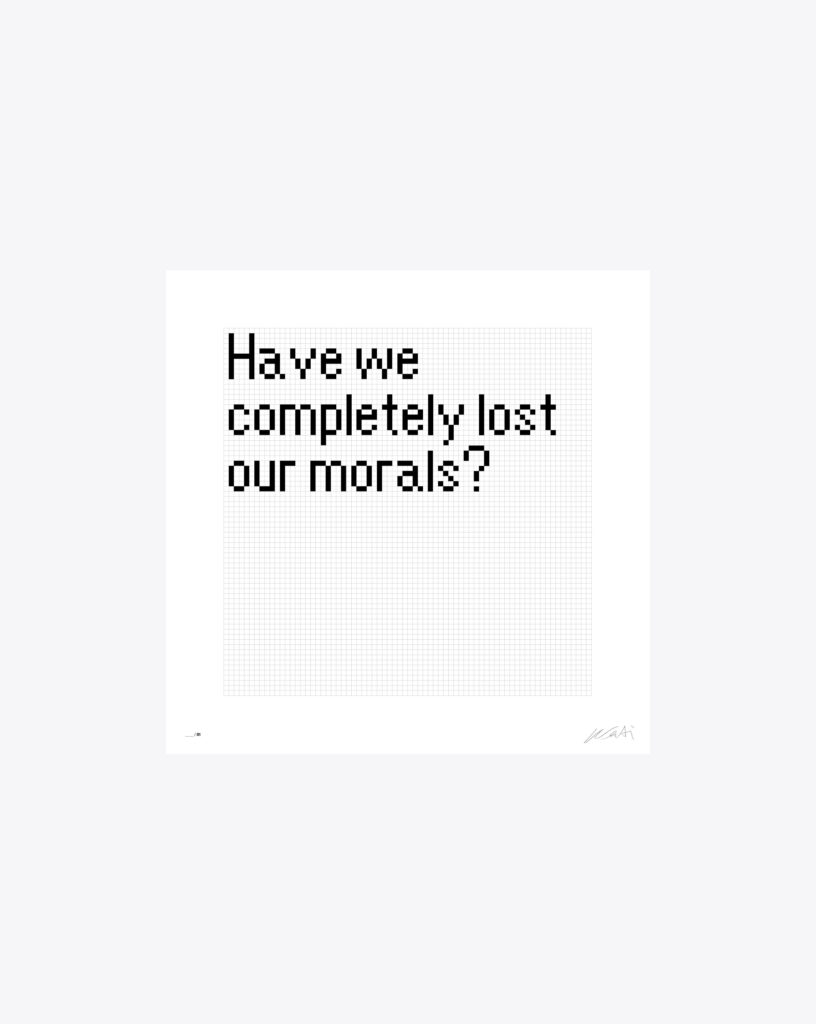
QUESTION 50/81
£600
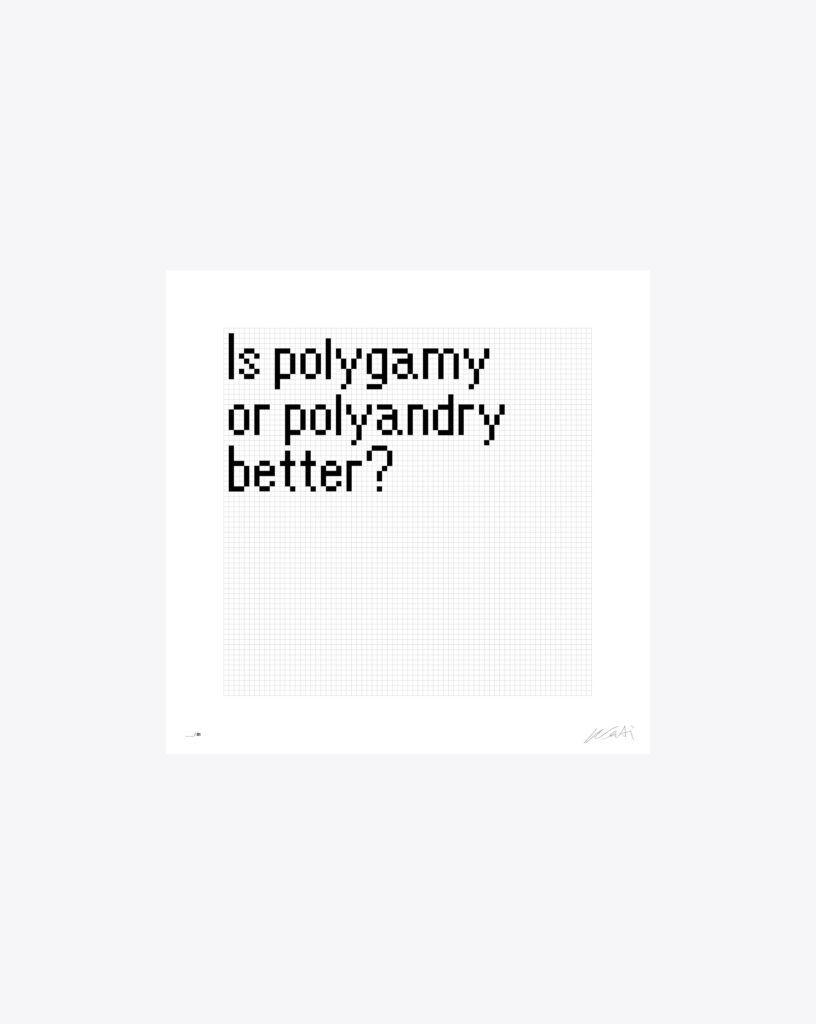
QUESTION 51/81
£600
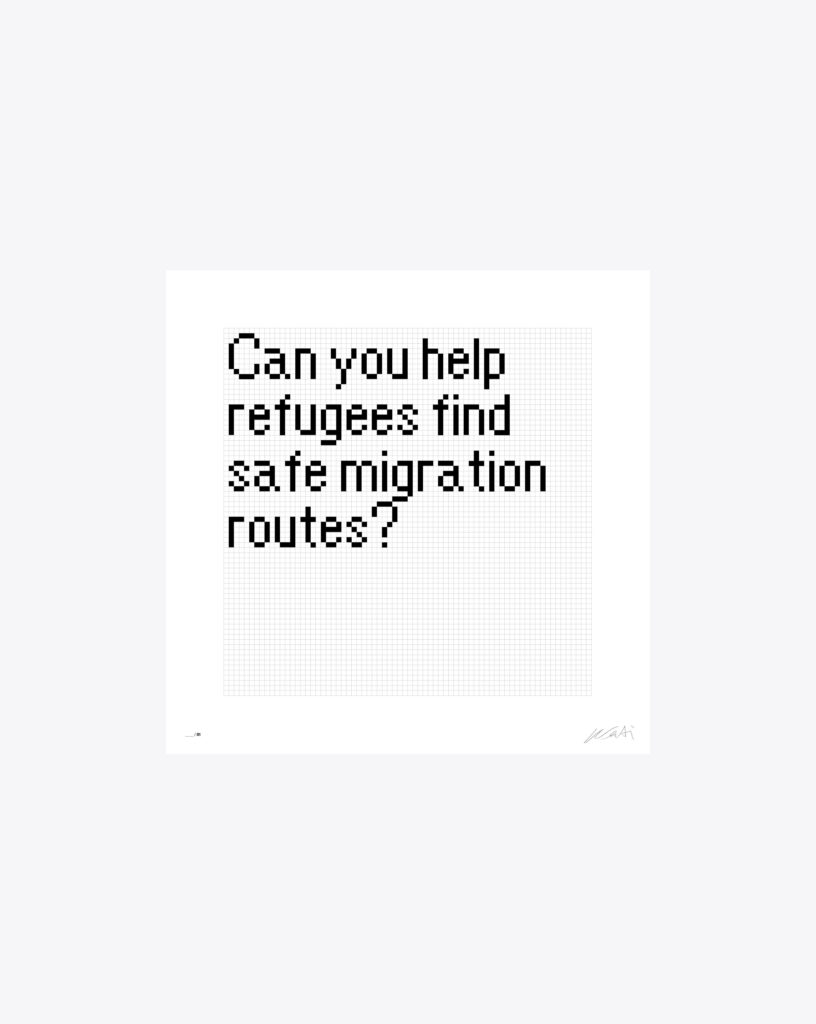
QUESTION 52/81
£600
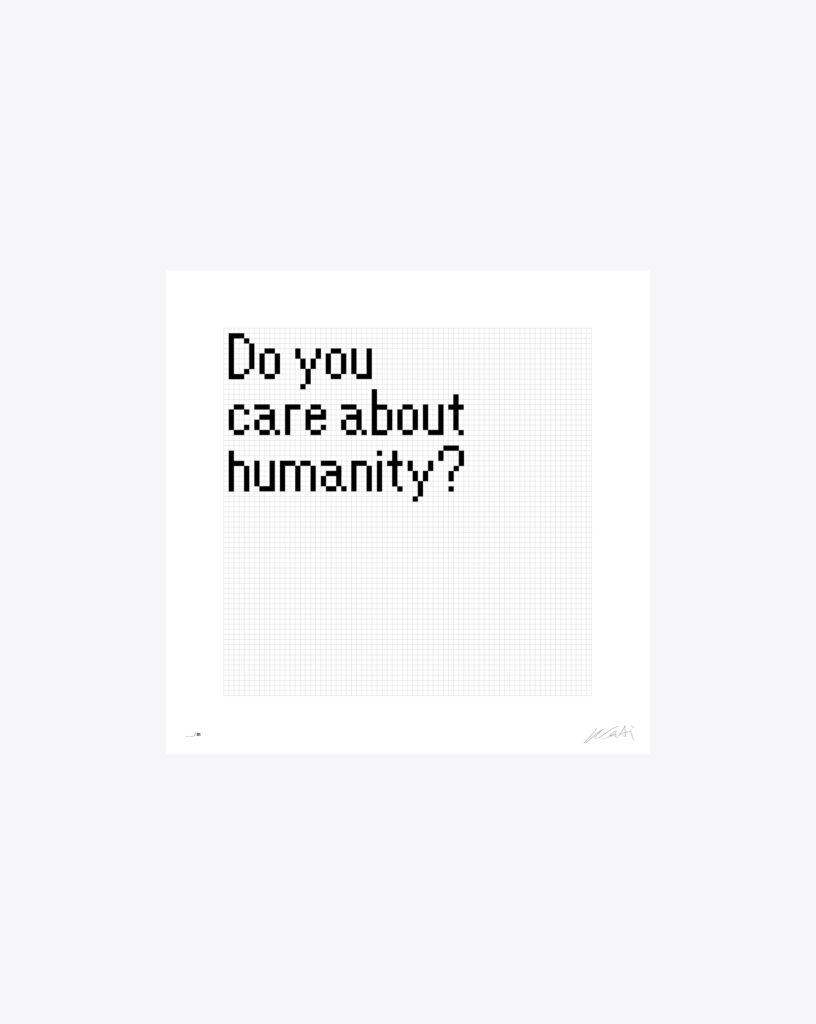
QUESTION 53/81
£600
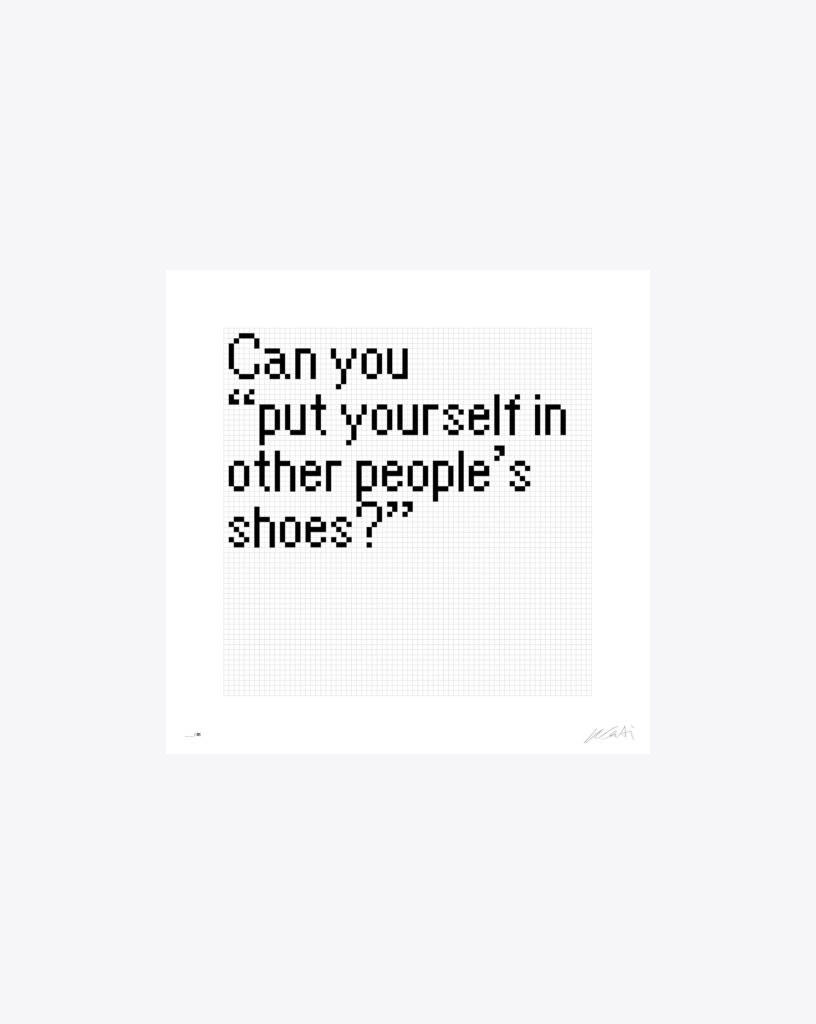
QUESTION 54/81
£600
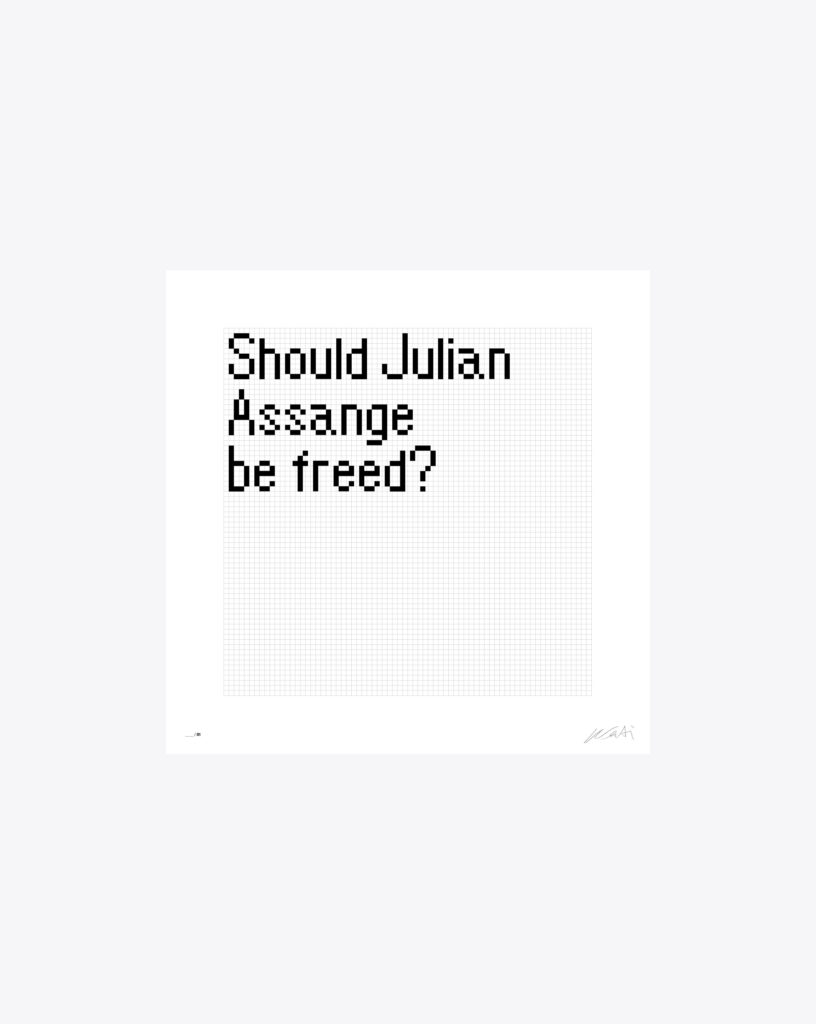
QUESTION 55/81
£600

QUESTION 56/81
£600
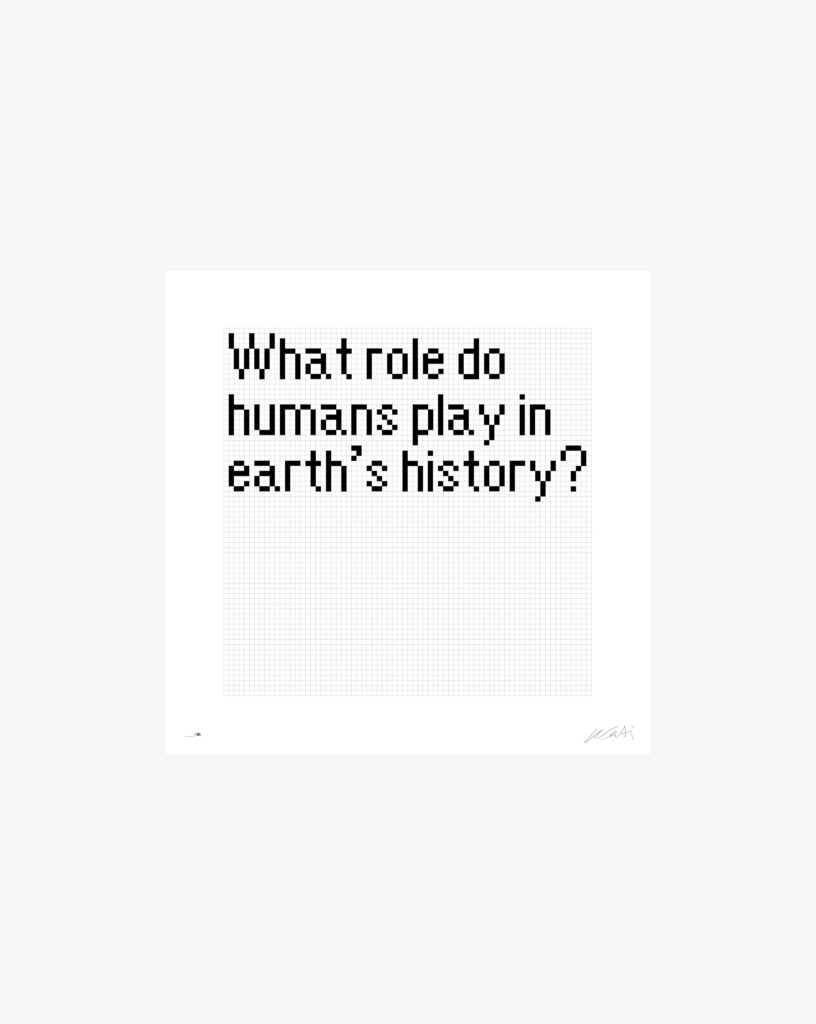
QUESTION 57/81
£600
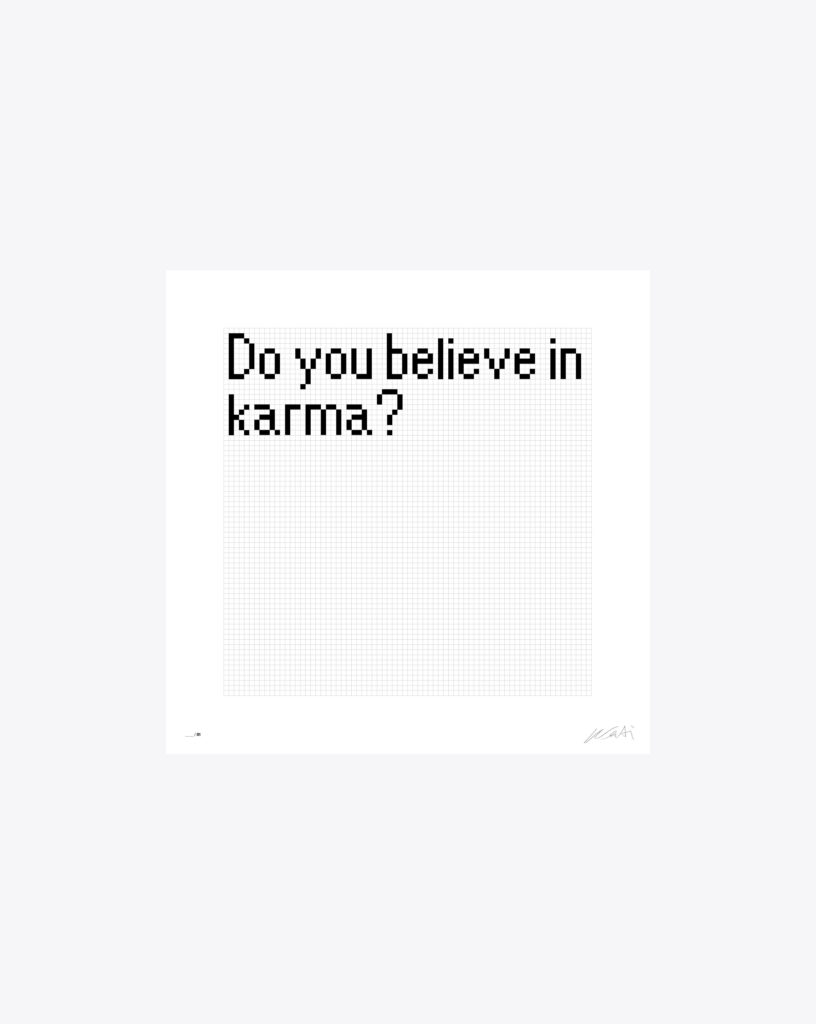
QUESTION 58/81
SOLD OUT
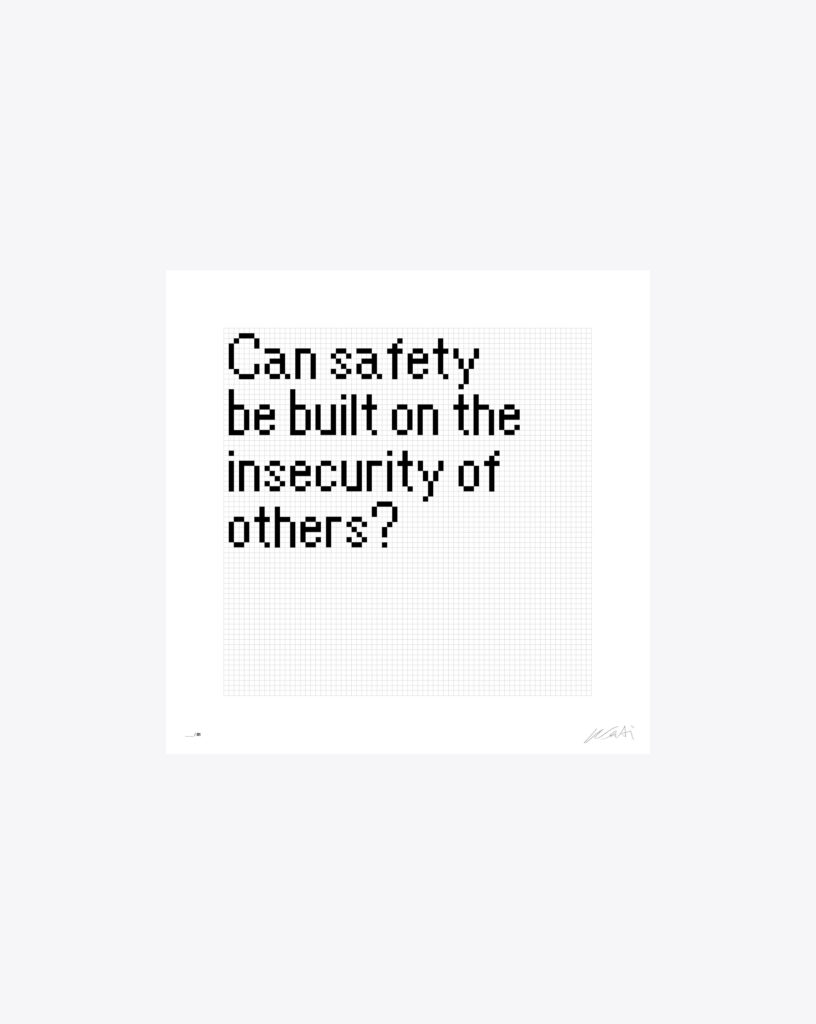
QUESTION 59/81
£600

QUESTION 60/81
£600

QUESTION 61/81
£600

QUESTION 62/81
£600

QUESTION 63/81
£600
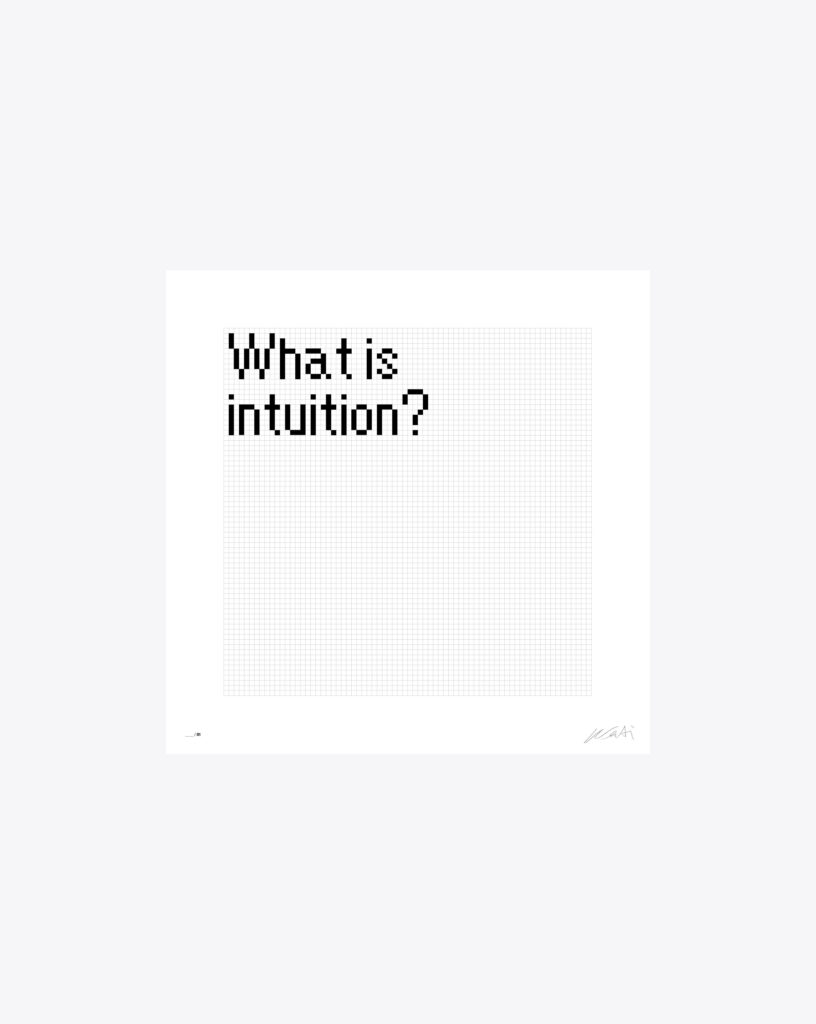
QUESTION 64/81
£600
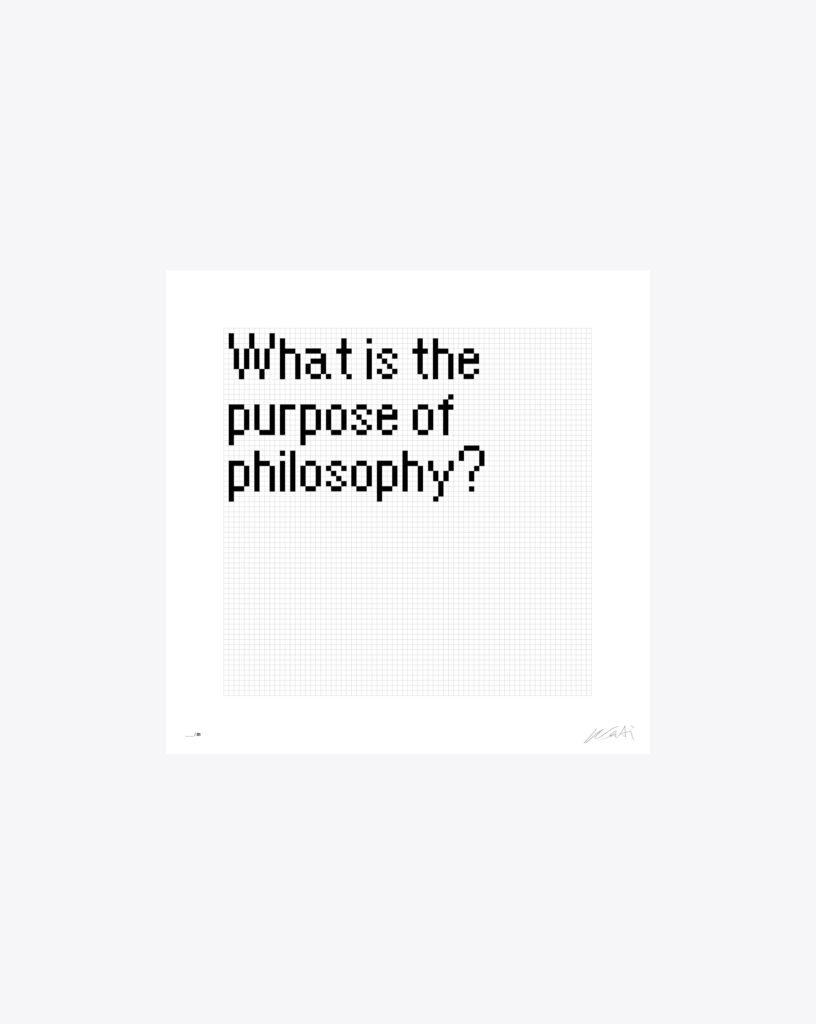
QUESTION 65/81
£600
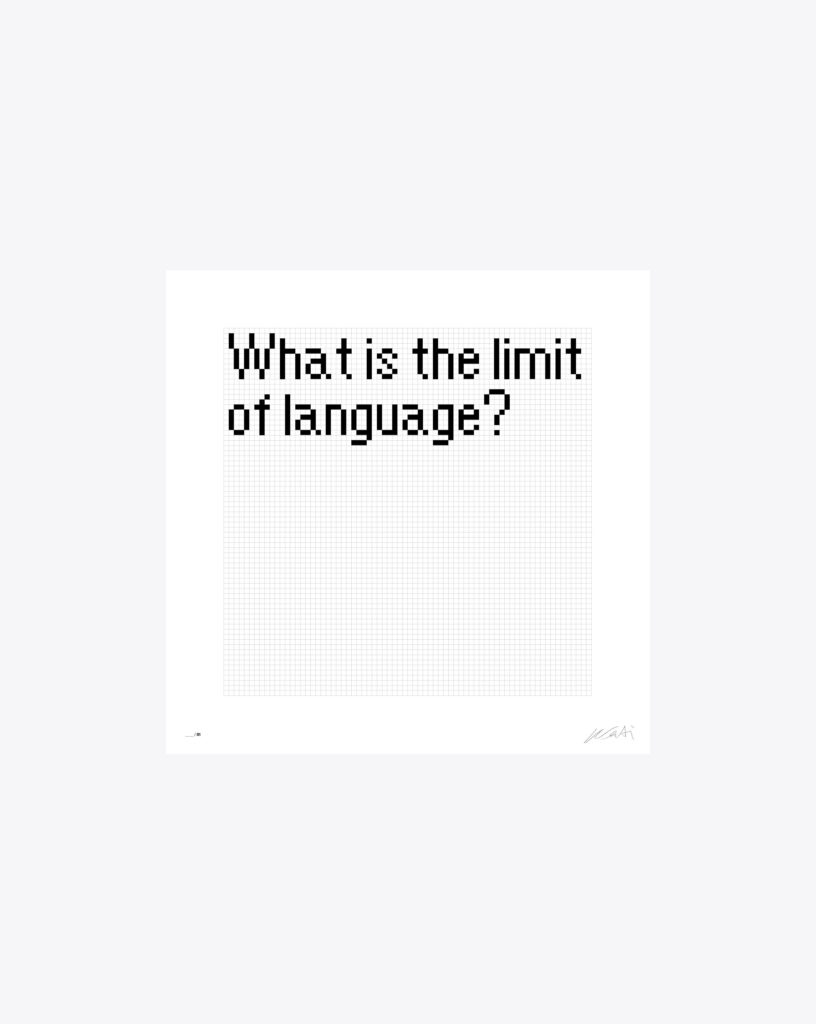
QUESTION 66/81
£600

QUESTION 67/81
£600

QUESTION 68/81
£600
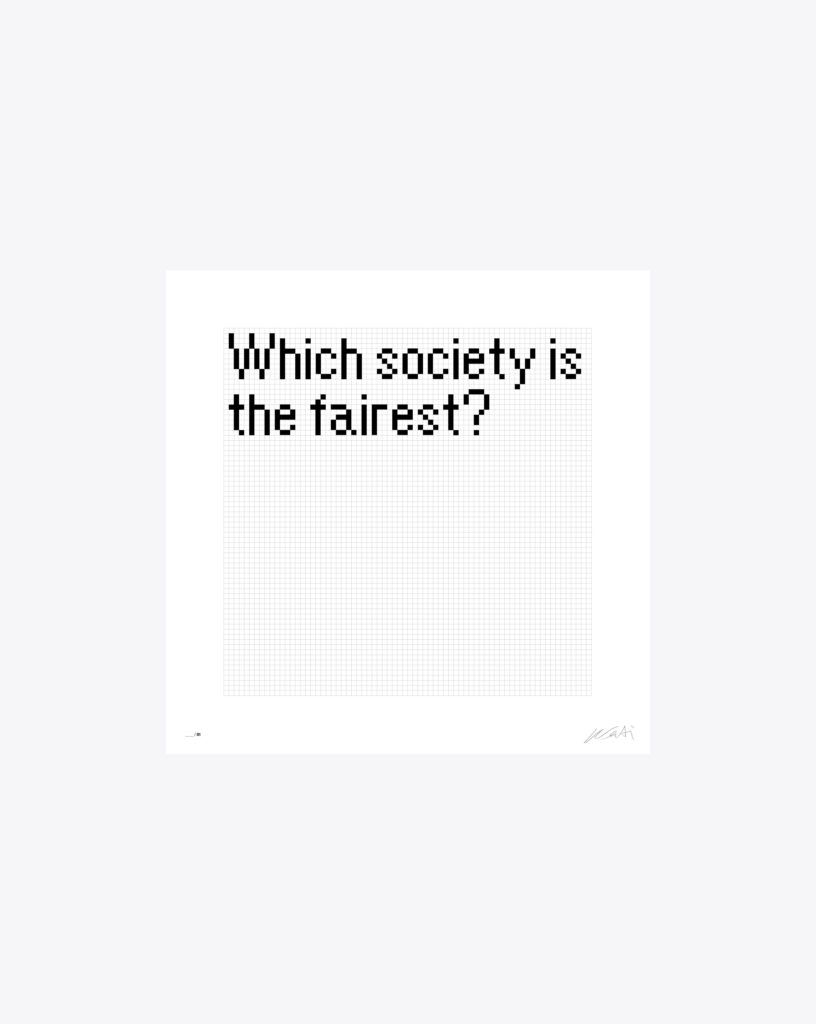
QUESTION 69/81
£600

QUESTION 70/81
£600
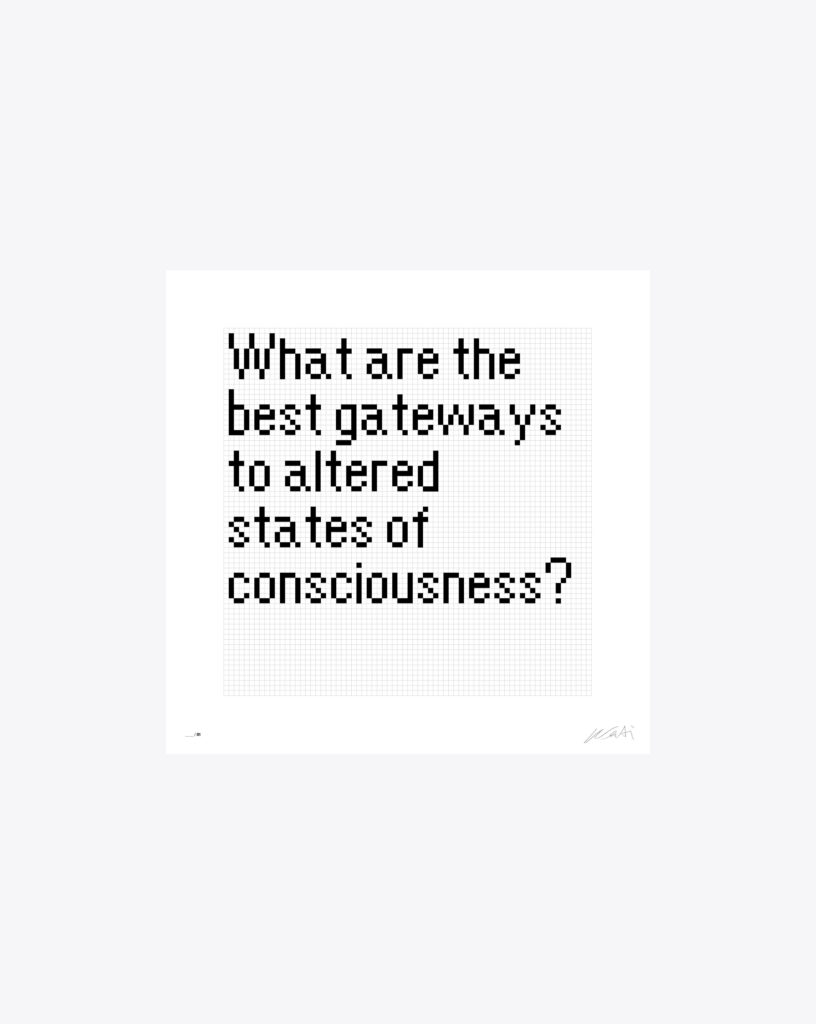
QUESTION 71/81
£600
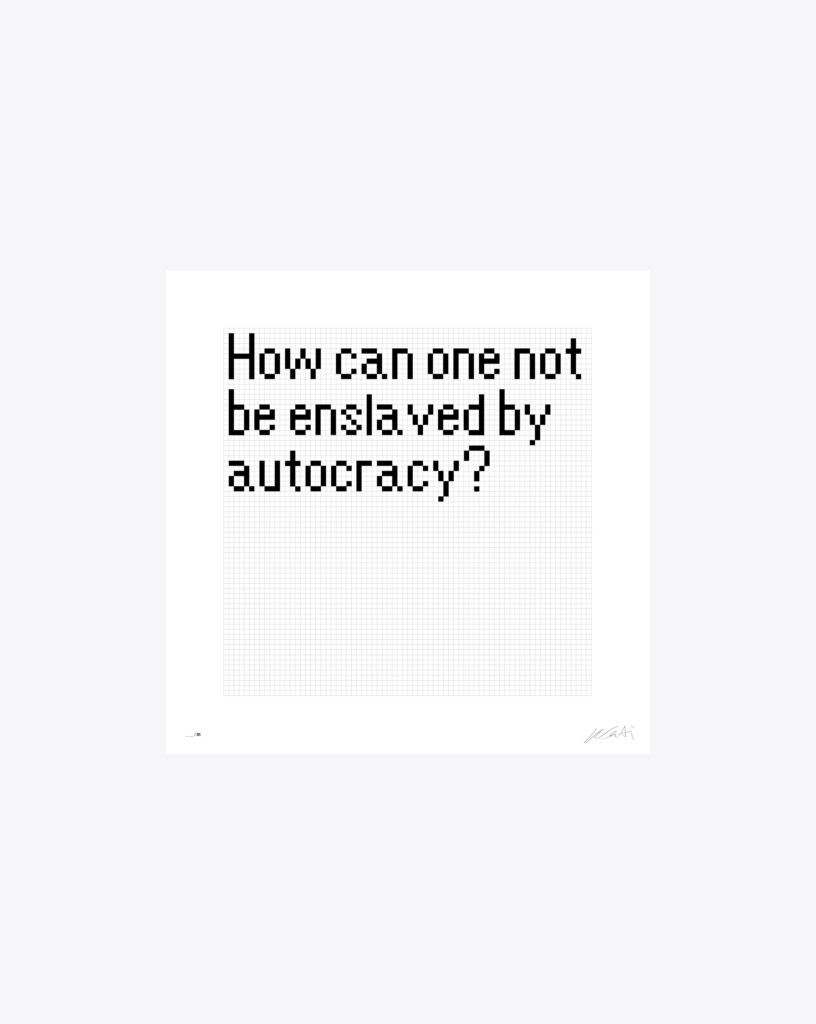
QUESTION 72/81
£600

QUESTION 73/81
£600
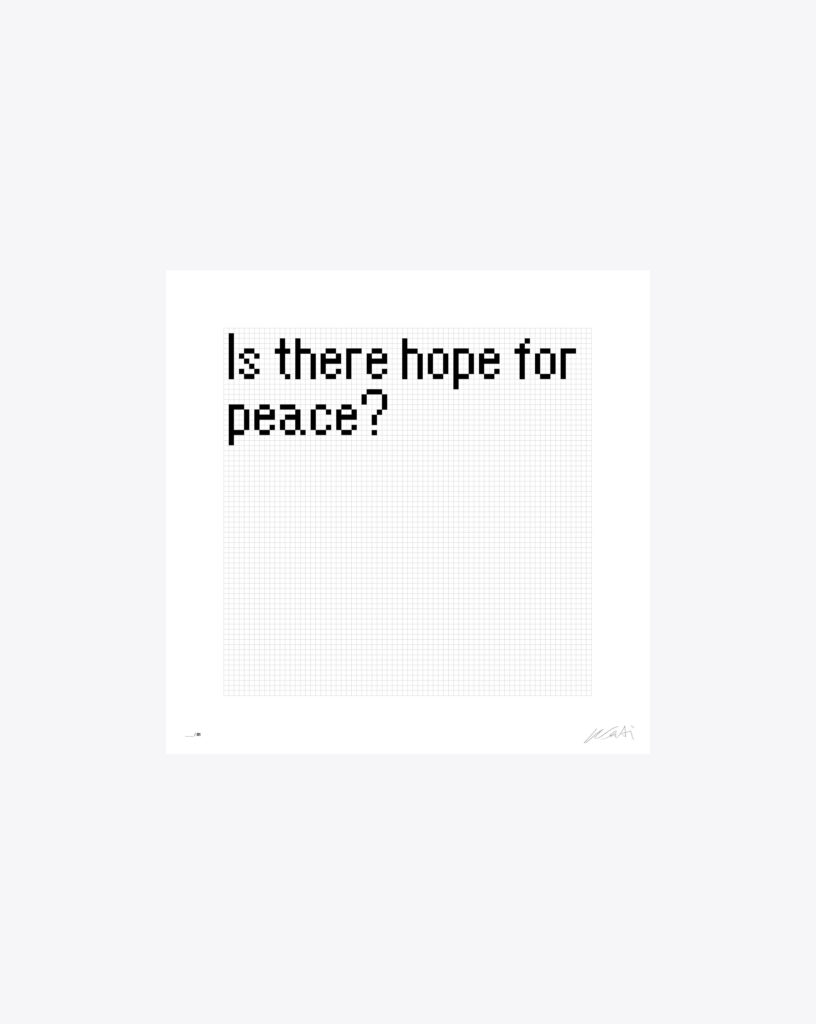
QUESTION 74/81
£600
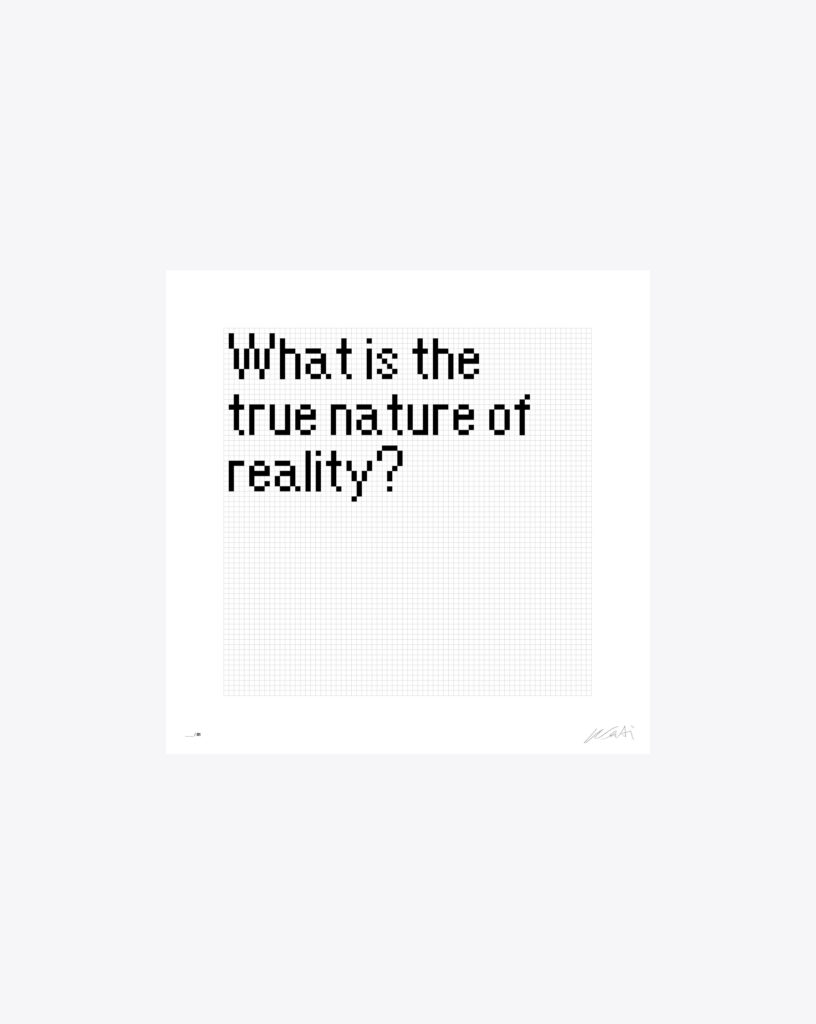
QUESTION 75/81
£600
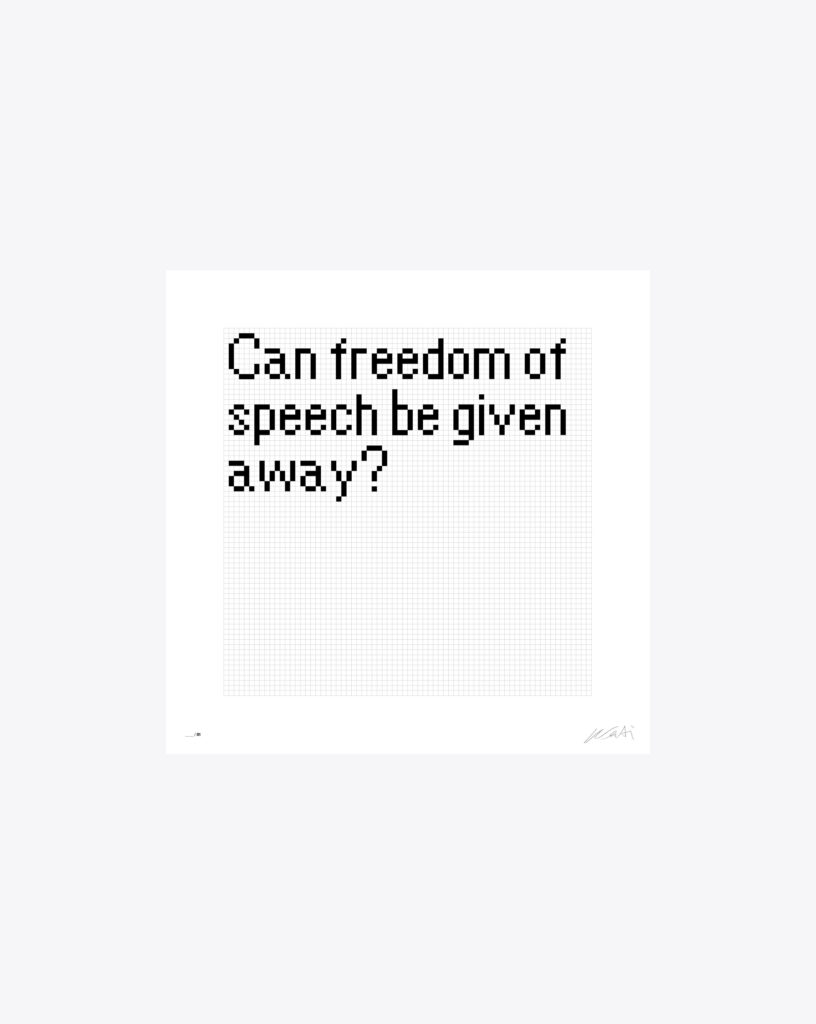
QUESTION 76/81
£600
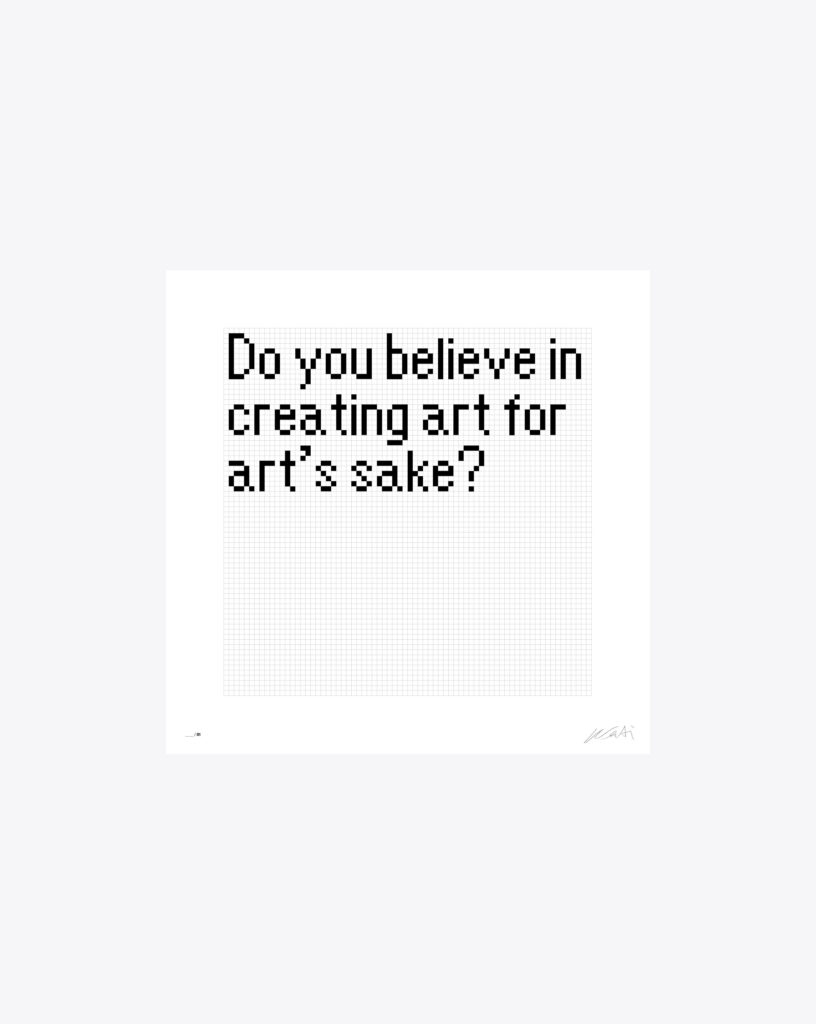
QUESTION 77/81
SOLD OUT
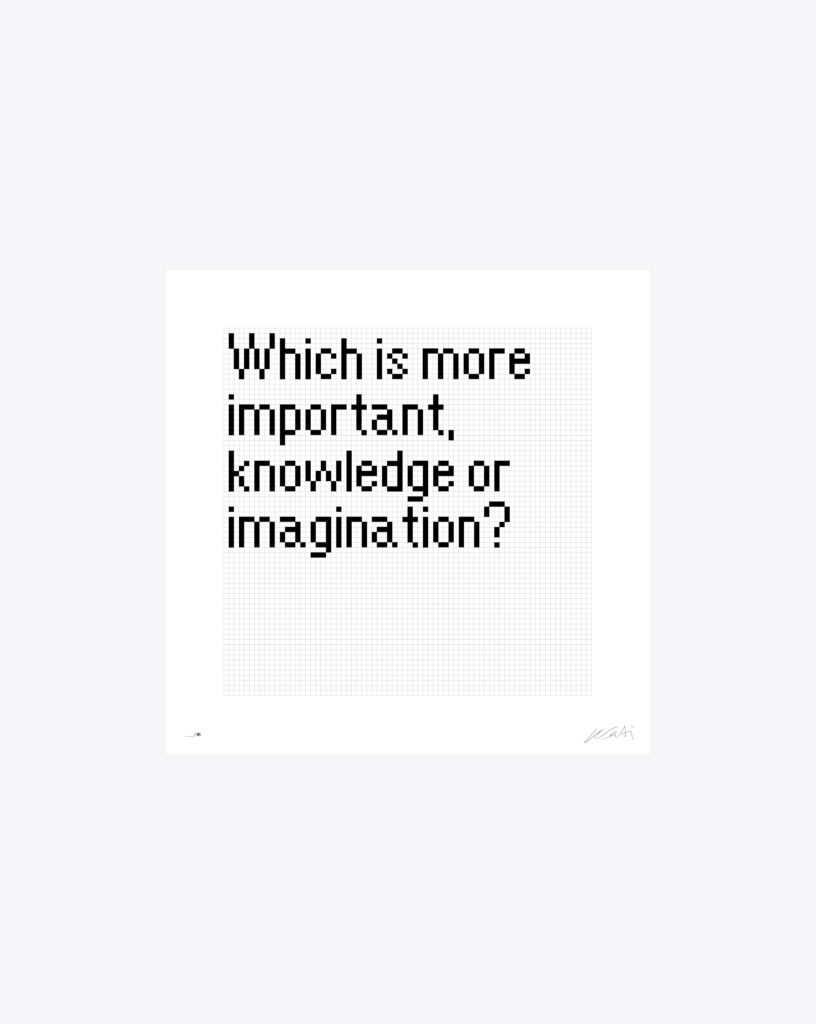
QUESTION 78/81
SOLD OUT
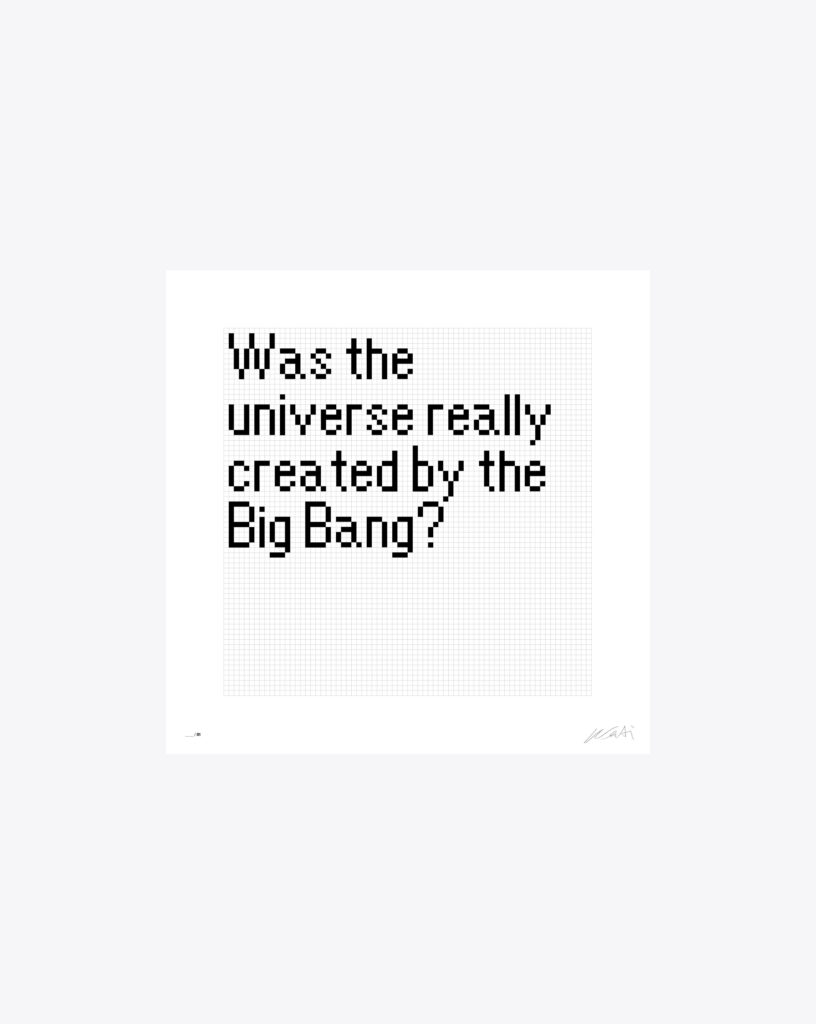
QUESTION 79/81
£600
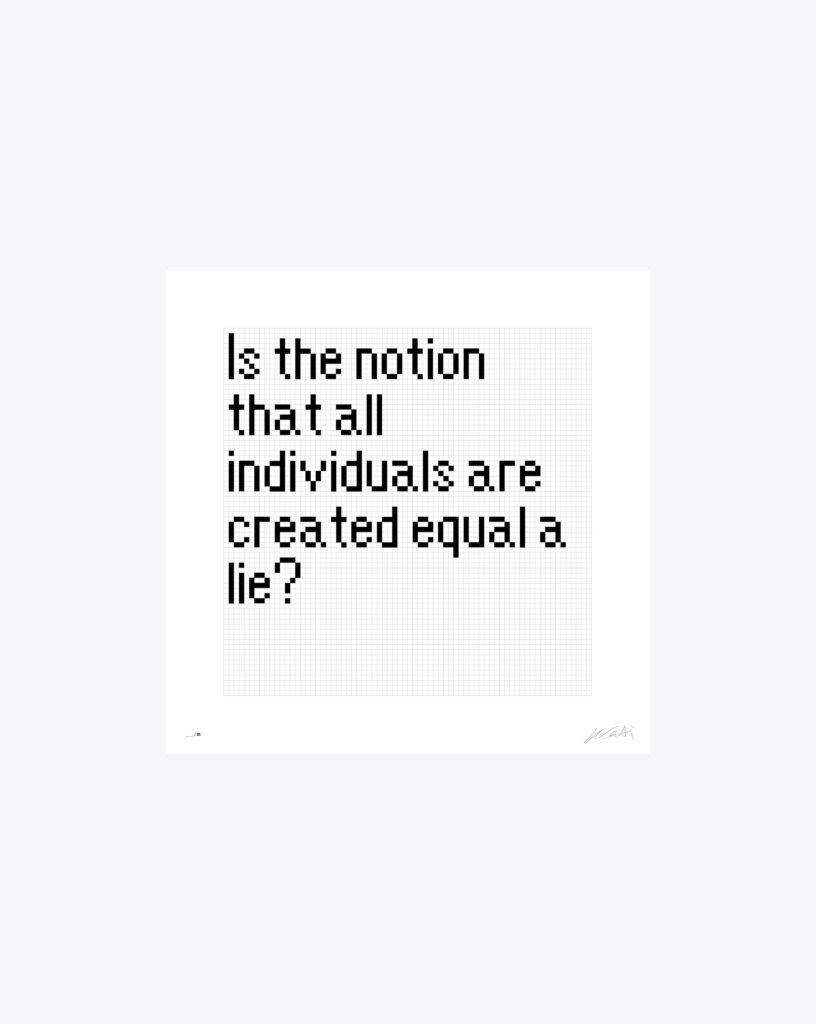
QUESTION 80/81
£600
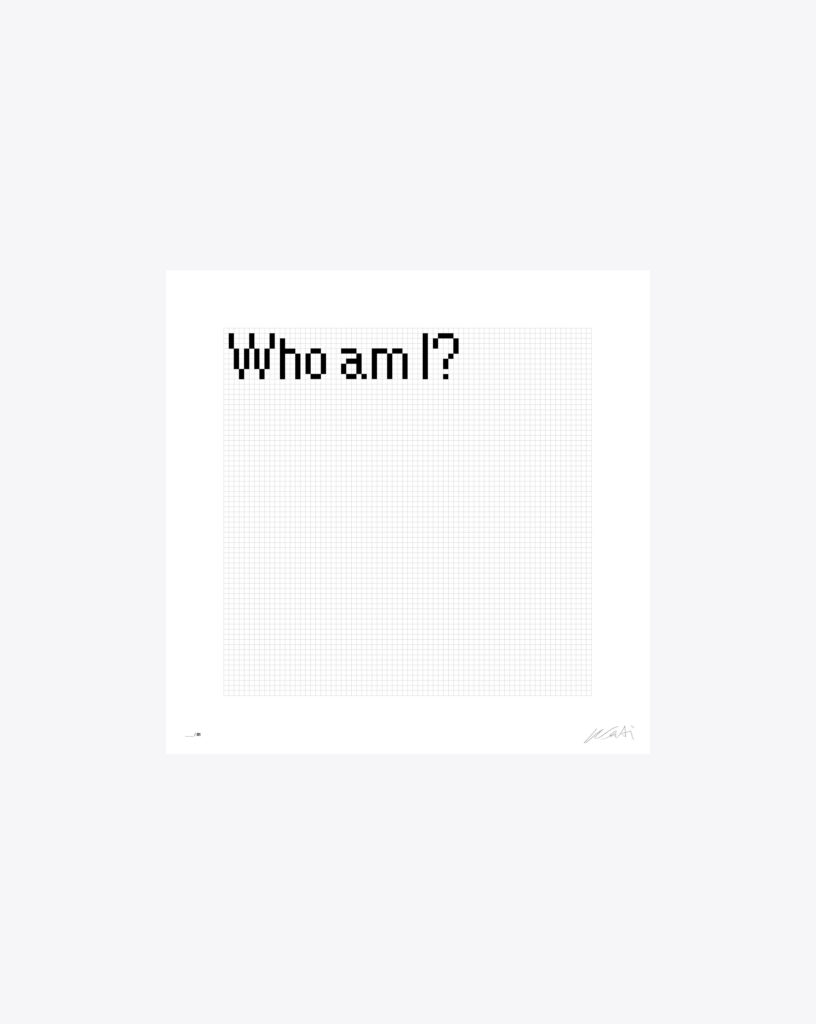
QUESTION 81/81
SOLD OUT
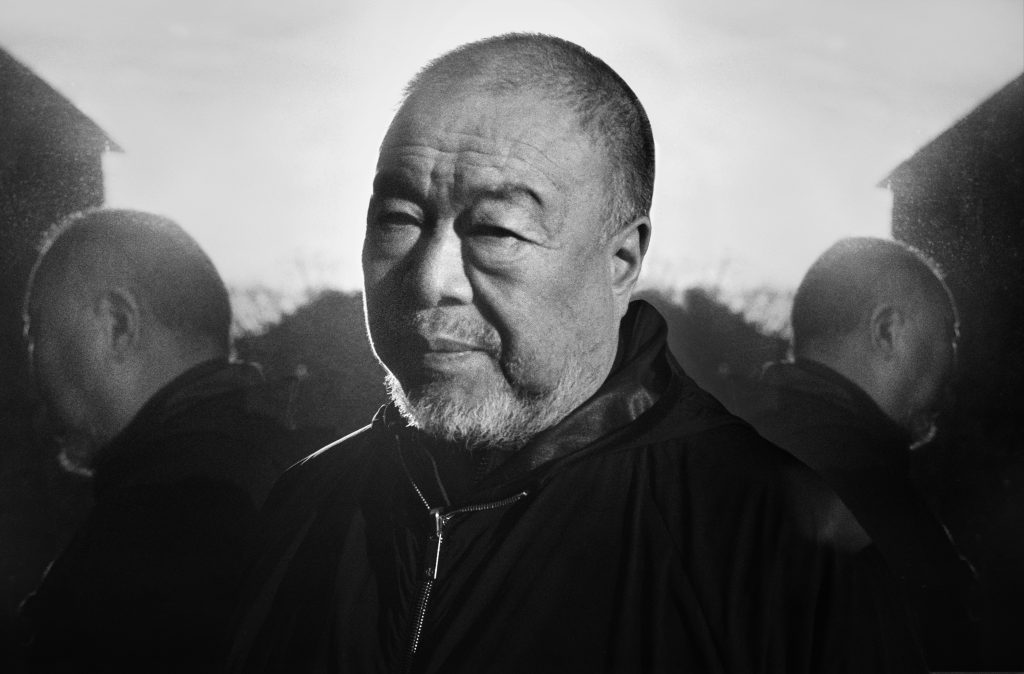
In our questions, more so than any answers, we can find the map of the human mind. We ask questions in search of learning and understanding, says Ai Weiwei, dividing ourselves from systems of Artificial Intelligence (AI) that lack interior identities. The questions we ask reveal our humanity and preoccupations, further distancing the human questioner from machine systems, which have no life story, no personhood from which any sincere question can arise.
Ai Weiwei’s 81 questions are both the continuation of a deep history of rational and spiritual inquiry as well as an innately idiosyncratic autoportrait. Ai vs AI is both an endeavour to reinvigorate the ancient convention of philosophical dialogues (from Socrates to The Enlightenment Salon) and a hand-drawn map of Ai’s own mind. Taking inspiration from both the Tiānwèn (‘The Heavenly Questions’) and Ai’s 81-day imprisonment, he explores how the act of questioning retains power today. “Authorities always know more than you, and they play a game of not telling you what they know,” says Ai. At all times, they tell you less than you should know. Like many who have lived under authoritarian systems, Ai still has no answer to fundamental and life-shaping questions: “Why was I jailed? Why was I released?” Such painful and complex histories are the foundations of our identities; the questions Ai asks today are asked by the person who has lived this life, drawing an irresolvable distinction between the human and machine. “Questions are important because they relate to our personal stories.”
For all humans – from newly inquisitive children to longest-lived adults – the one capacity and freedom we retain is the question, says Ai. Answers are routinely and blandly mass-produced in knowledge factories – including schools, religious institutions, nations and national myths – yet we often believe answers remain more important than questions. Questions are, in themselves, generative: in asking, we sketch out a terrain vague of human inquiry: for thousands of years, Chinese poets and thinkers asked what we might find walking on the surface of the moon, says Ai – this unknown fueling creativity and generating poetry and song. For this fertile landscape of imagination, the arrival of astronauts on the moon and the photography of dusty craters delivered by lunar exploration marked the destruction of creative terrain. “Expression has always been structured by words and by forms – as fairy tales and mythology,” says Ai. “We have to give a symbolic character to any expression.”
Still, rising systems of technology and knowledge production present new challenges to our ability to question the world. In an age of rising artificial intelligence – when humanity’s role in many forms of knowledge labour is reduced to asking the right questions to powerful systems of information processing – we are reminded that questions are far more than a means to an end, says Ai. “If humans will ever be liberated, it will be because we ask the right questions, not provide the right answers.”